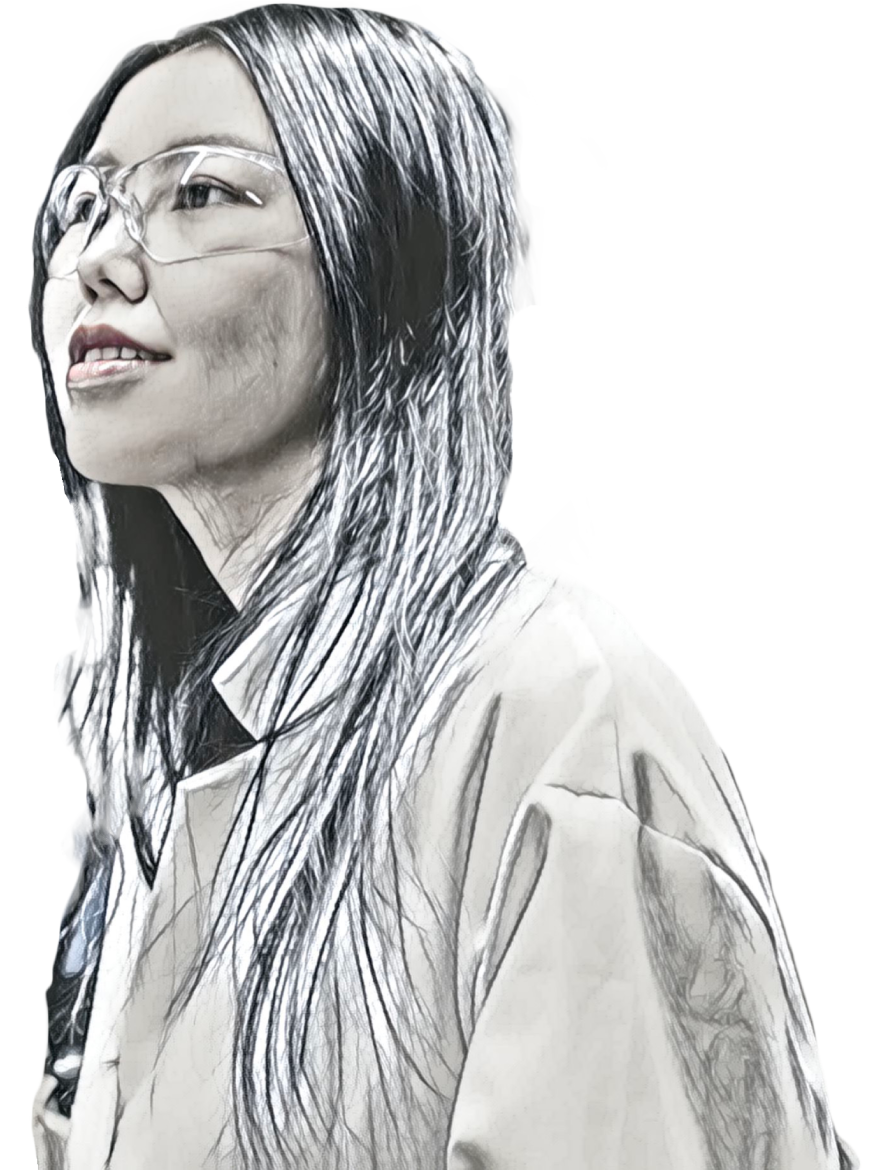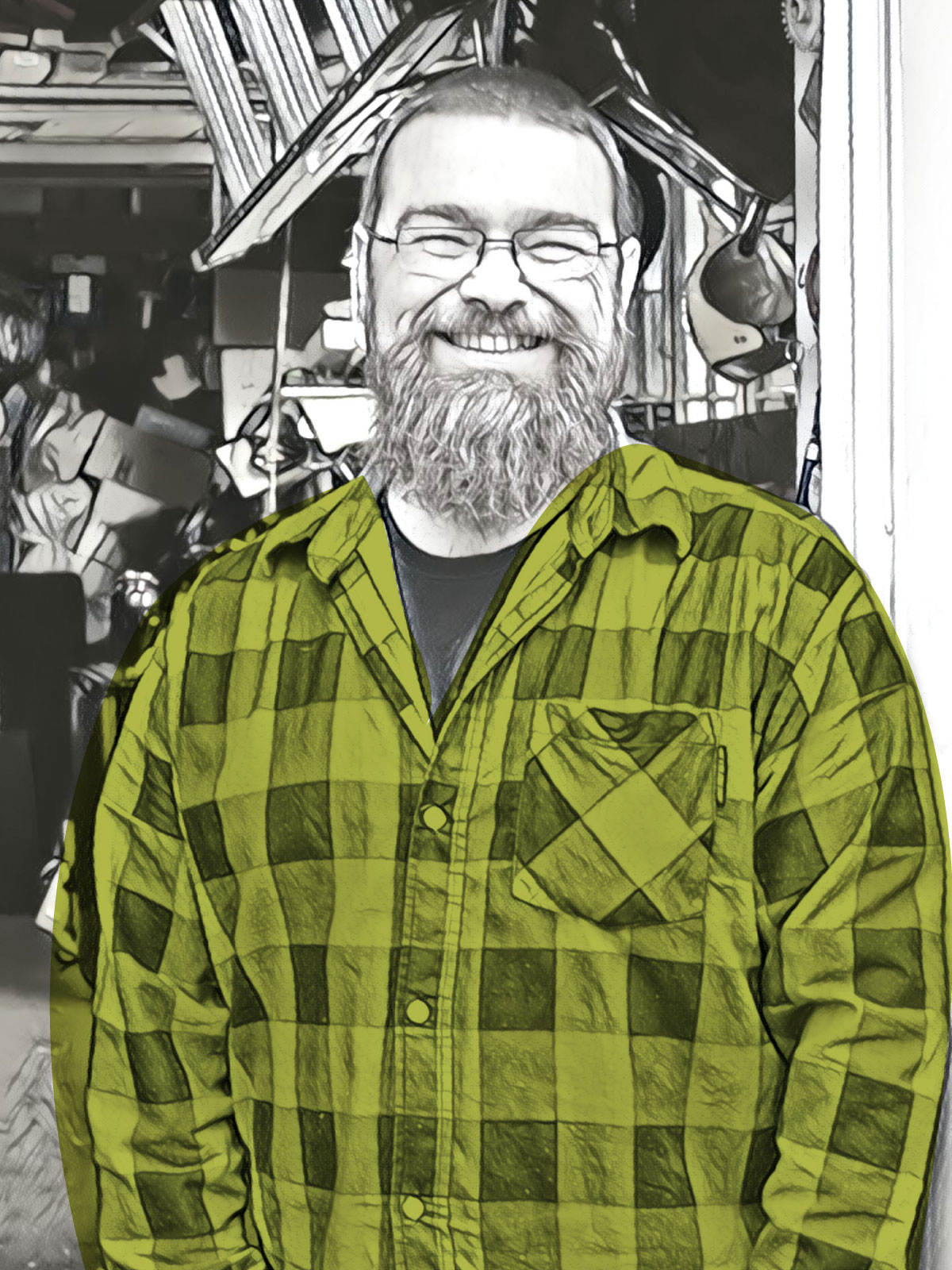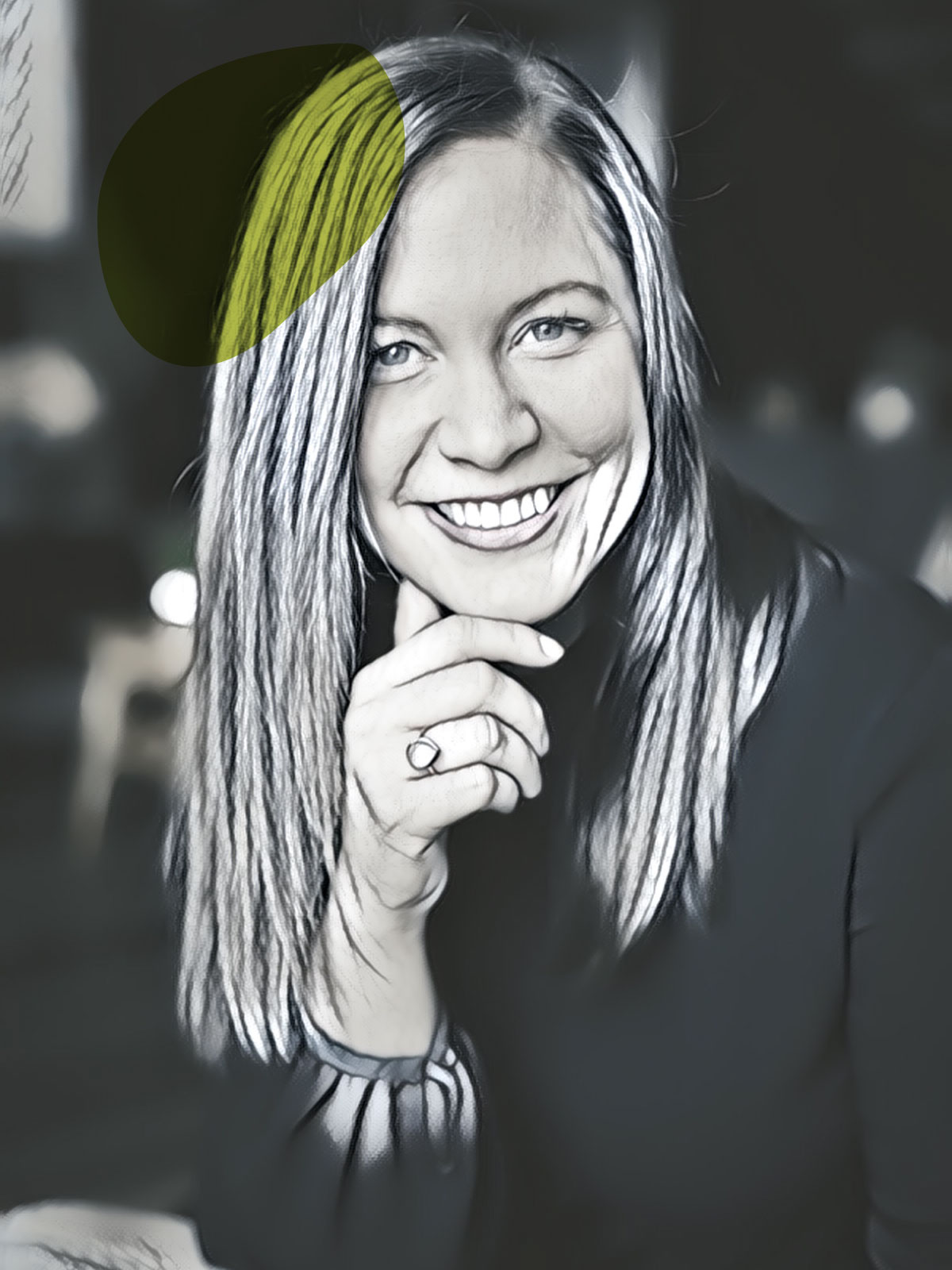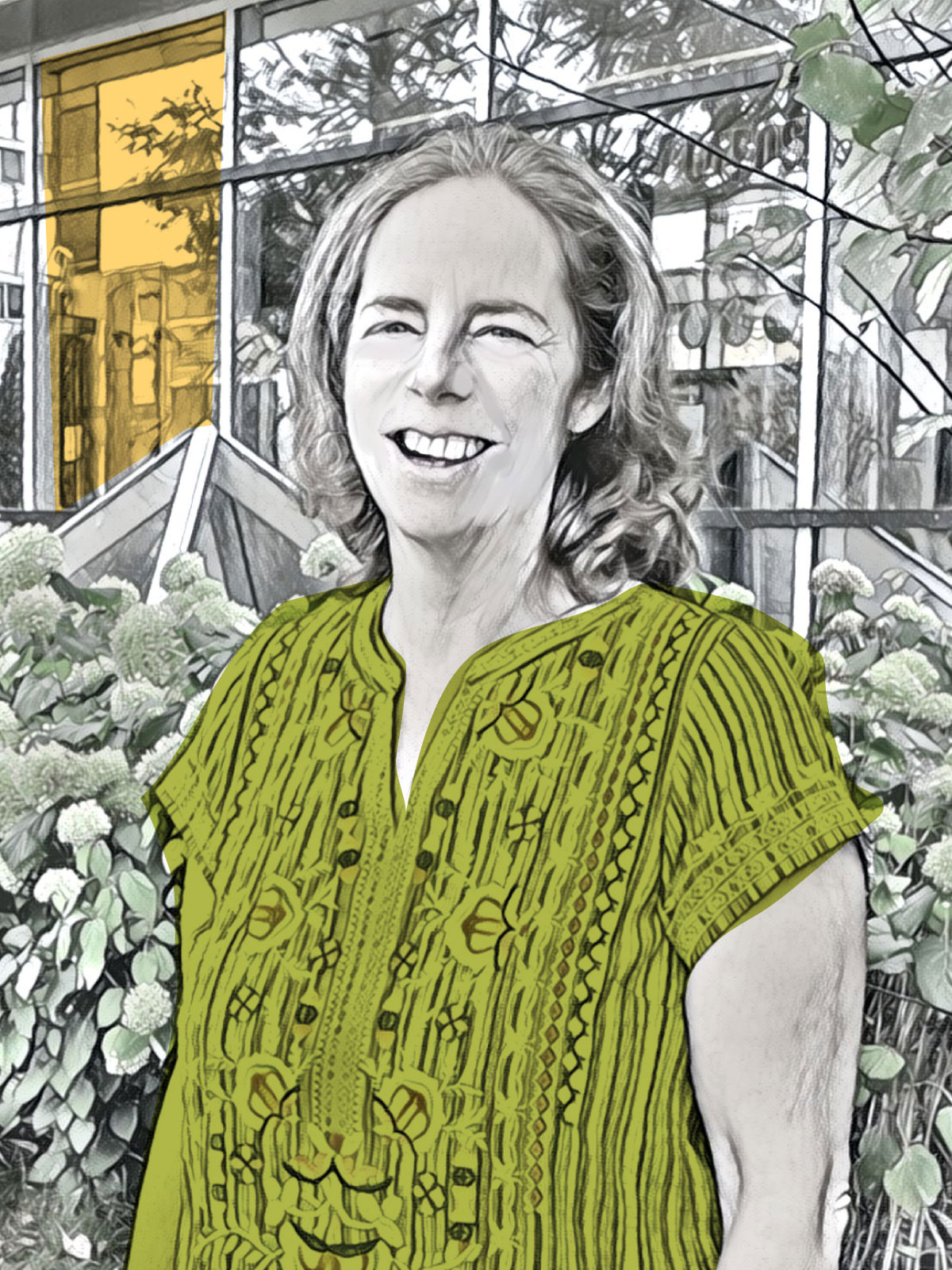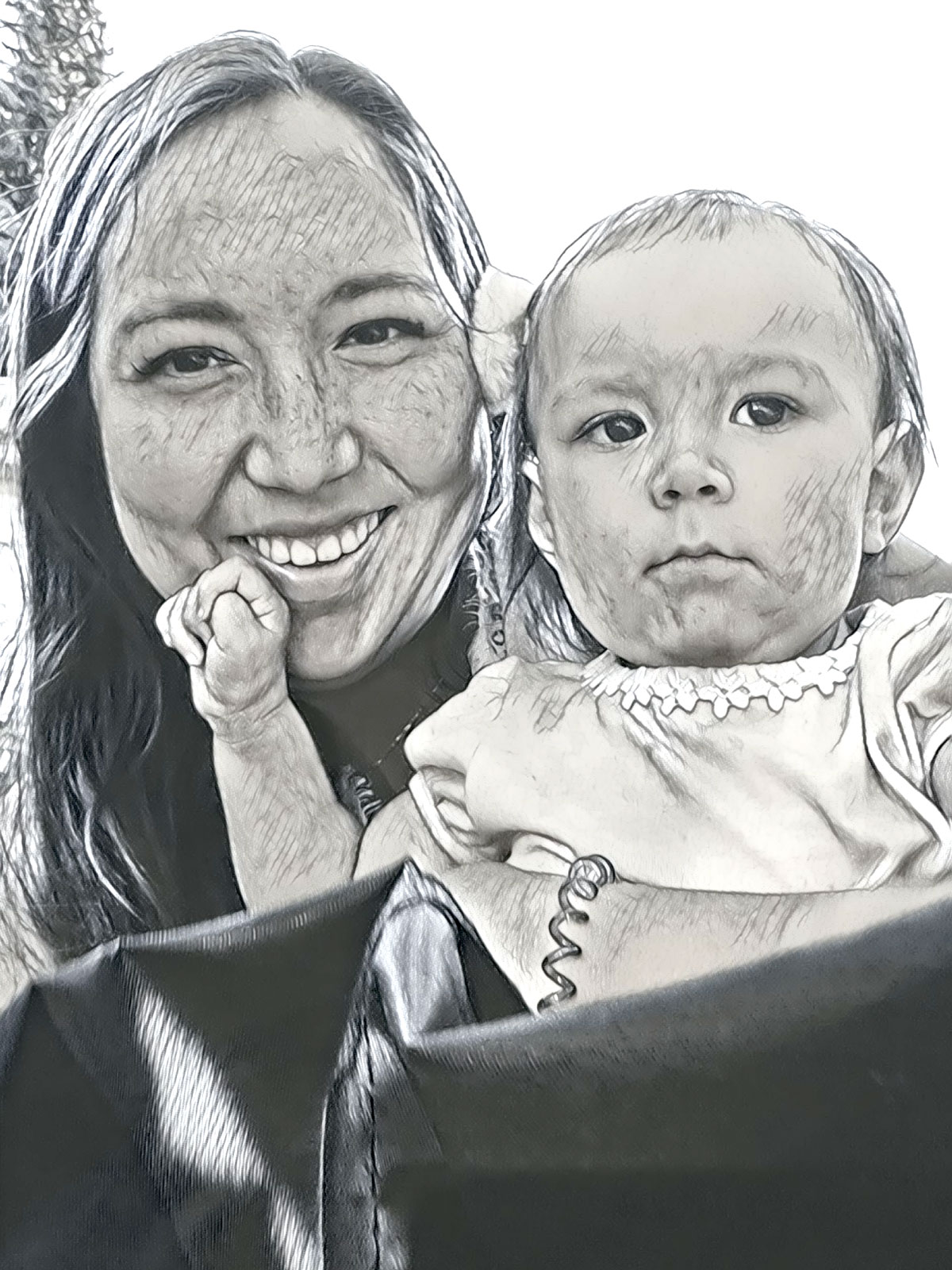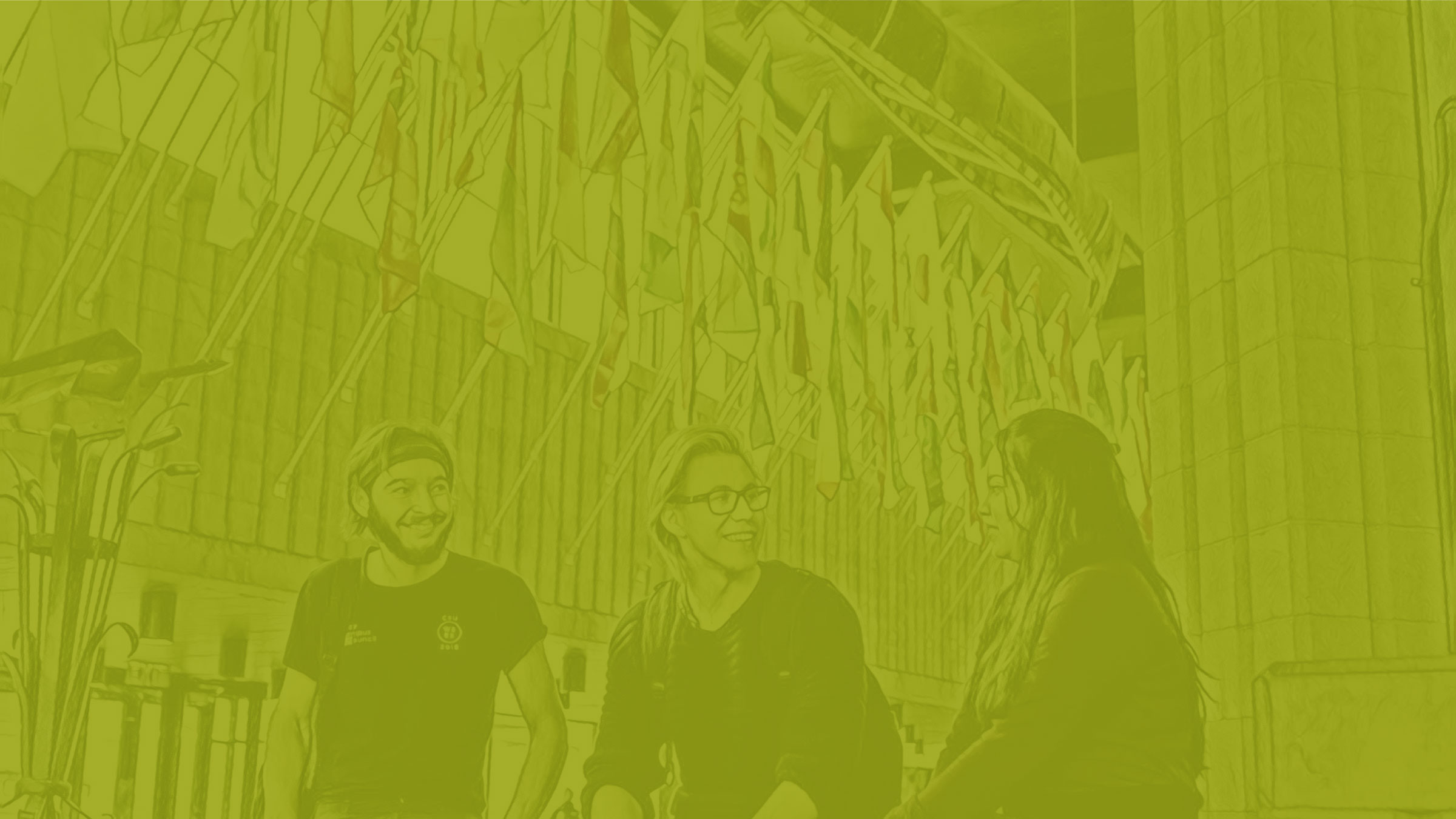2020-2021 Annual Report
Unstoppable.
Message from the
President, Provost, Principal
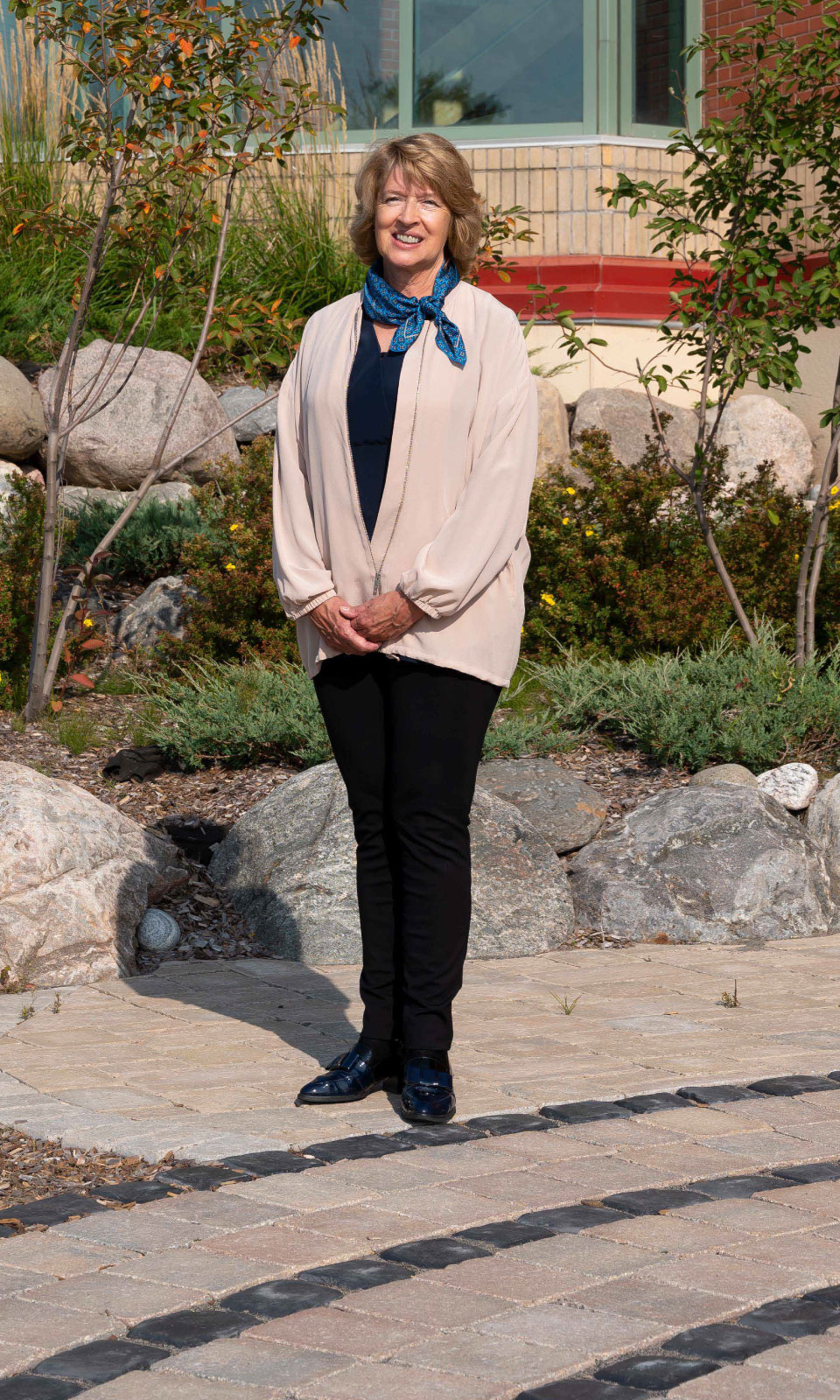
Dr. Moira McPherson
President and Vice Chancellor
Unstoppable defines who we are, including generations of alumni making a positive difference in communities around the world, as well as the dynamic future ahead of us as a nationally- and internationally-acclaimed institution that puts students first, is renowned for its award-winning research, and is ranked among the world's top 100 universities in terms of its societal impact.
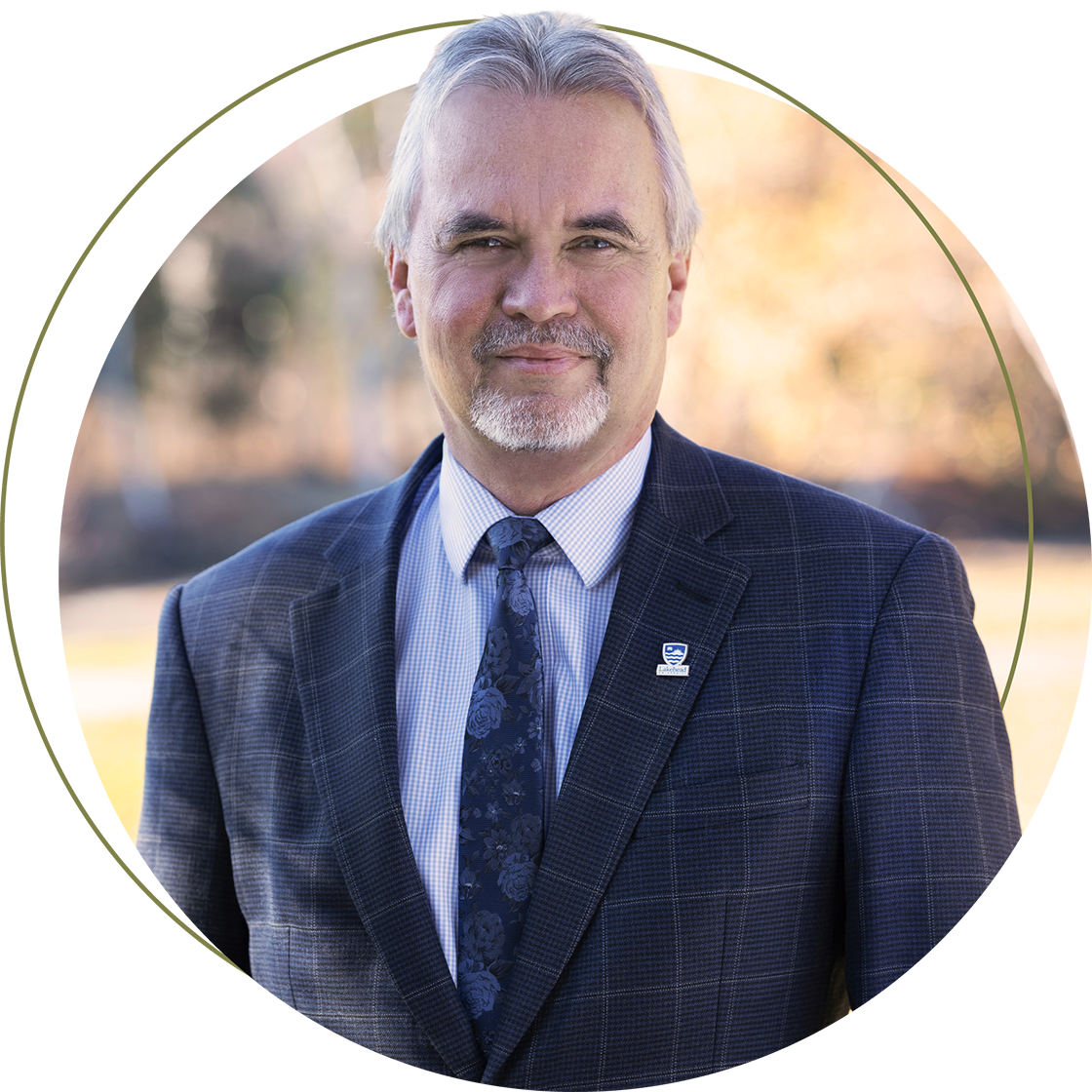
Dr. David Barnett
Provost and Vice President (Academic)
Unstoppable describes our University’s commitment to our students and communities, and how together, we faced and overcame the unprecedented circumstances stemming from a global pandemic by adapting to the ways we teach, learn, and work.
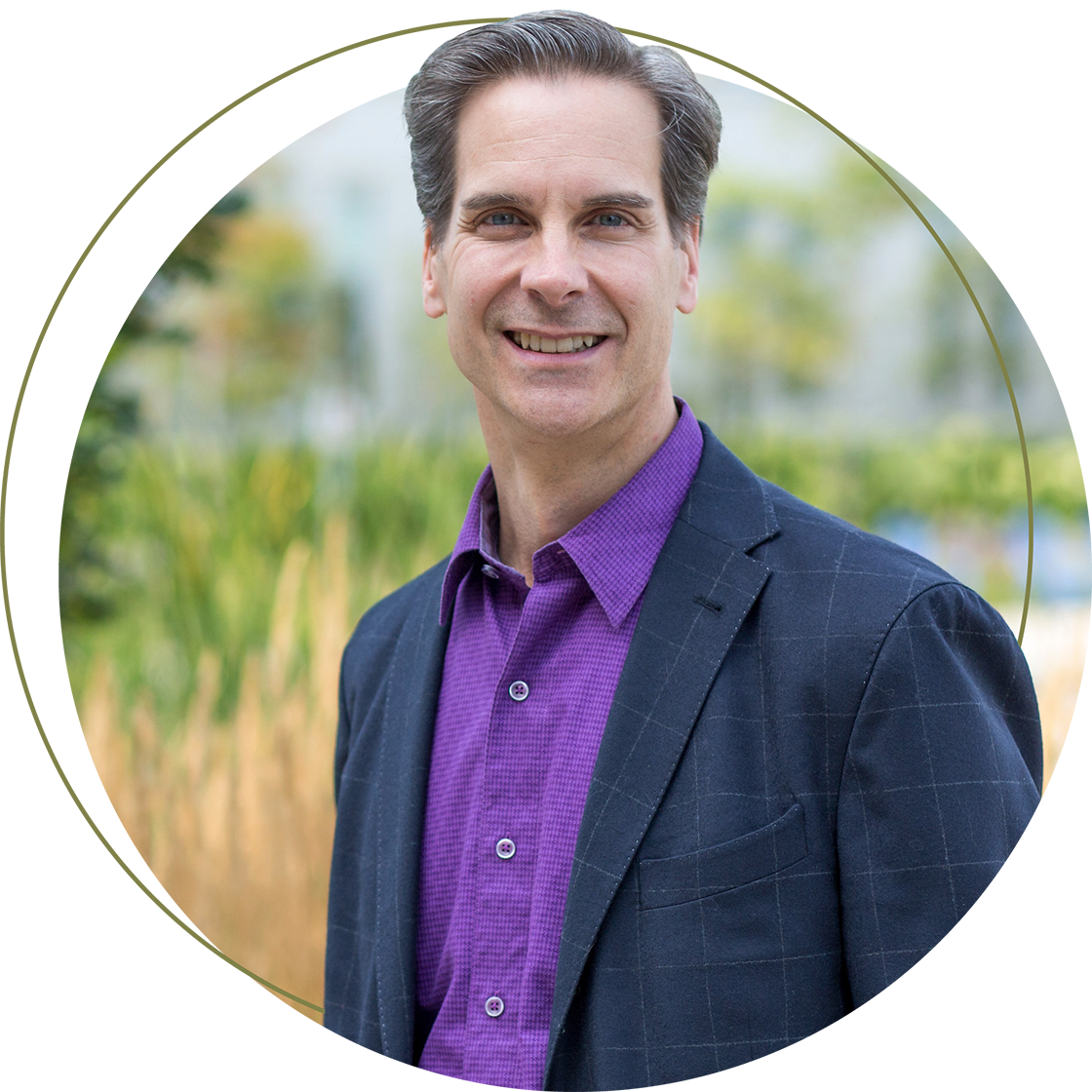
Dr. Dean Jobin-Bevans
Principal, Orillia Campus
Unstoppable is the feeling we imbue into our students and the communities we serve through a legacy of academic excellence, mutually-beneficial partnerships, and research opportunities that tackle complex issues — all of which have remarkable and lasting effects on personal achievements and regional prosperity.
Times Higher Education Ranking
Every year, the definitive list of the world's best universities is released by Times Higher Education.
This is the only global ranking to judge research-intensive universities across their core missions of teaching, research, international outlook, research citations, and industry income.
Every year, the definitive list of the world's best universities is released by Times Higher Education.
It is the only global ranking to evaluate research-intensive universities across their core missions of teaching, research, international outlook, research citations, and industry income.
THE World University Rankings
For the THIRD YEAR IN A ROW, Lakehead University has been included in the top half of the Times Higher Education's list of the best universities from around the world.
The 2022 Times Higher Education (THE) World University Rankings places Lakehead University in the 801-1,000 category out of more than 1,600 universities from 99 countries.
Lakehead ranked SECOND among Canada's primarily undergraduate universities and second among Ontario's primarily undergraduate universities.
Lakehead also ranked above the worldwide median in the areas of research and international outlook.
Lakehead making an impact on the world stage
For the third consecutive year, Lakehead University has been included in the top 100 of the Times Higher Education Impact Rankings. Lakehead is the highest ranked university in the world with fewer than 10,000 students.
Lakehead placed in the top 70 in the world based on our efforts in advancing the United Nations Sustainable Development Goals (SDGs), reflecting the University’s commitment to social, cultural and environmental sustainability.
In 2021, Lakehead finished 99th out of 1,115 universities from around the world.
Lakehead was the only primarily undergraduate university in Canada that participated in the 2021 Impact Rankings and one of only 26 universities from North America to be included in the top 100.
In 2021, Lakehead earned a top 10 ranking in SDG 15: Life on Land and a top 20 ranking in SDG Life Below Water, a top 30 ranking in SDG No Poverty and SDG Zero Hunger, and a top 40 ranking for SDG Reduced Inequalities and SDG Clean Water and Sanitation.
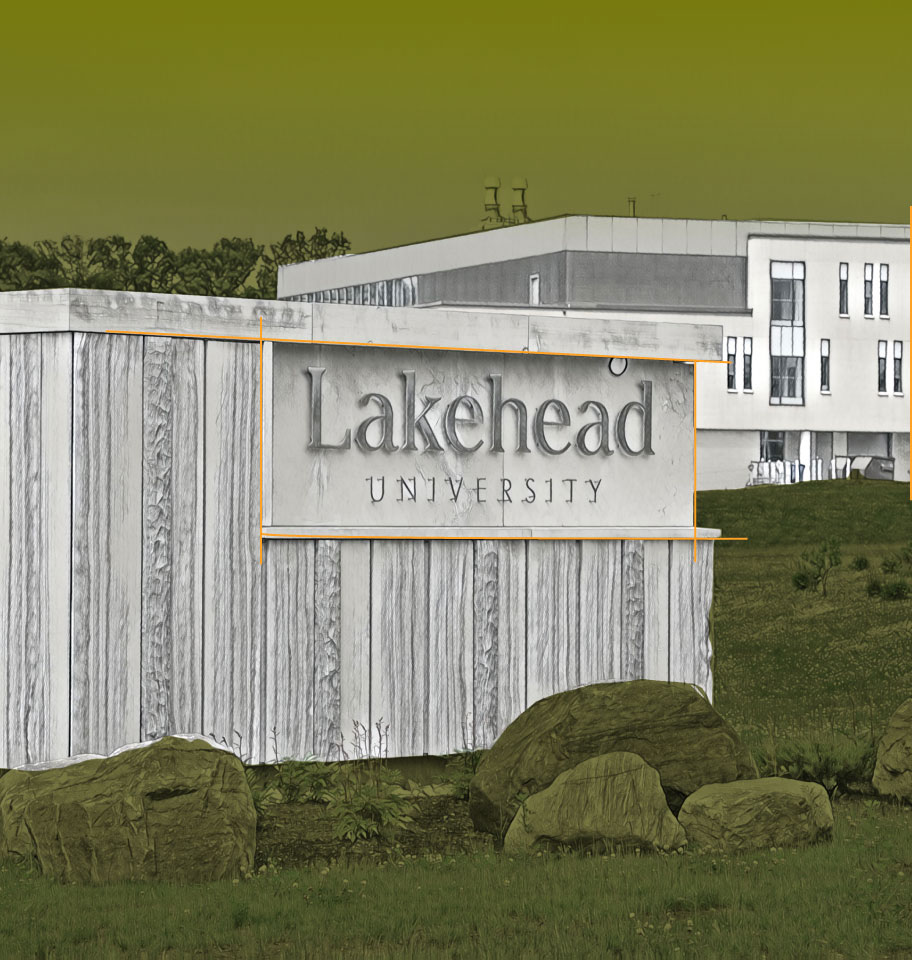
Watch the video
Stories to inspire.
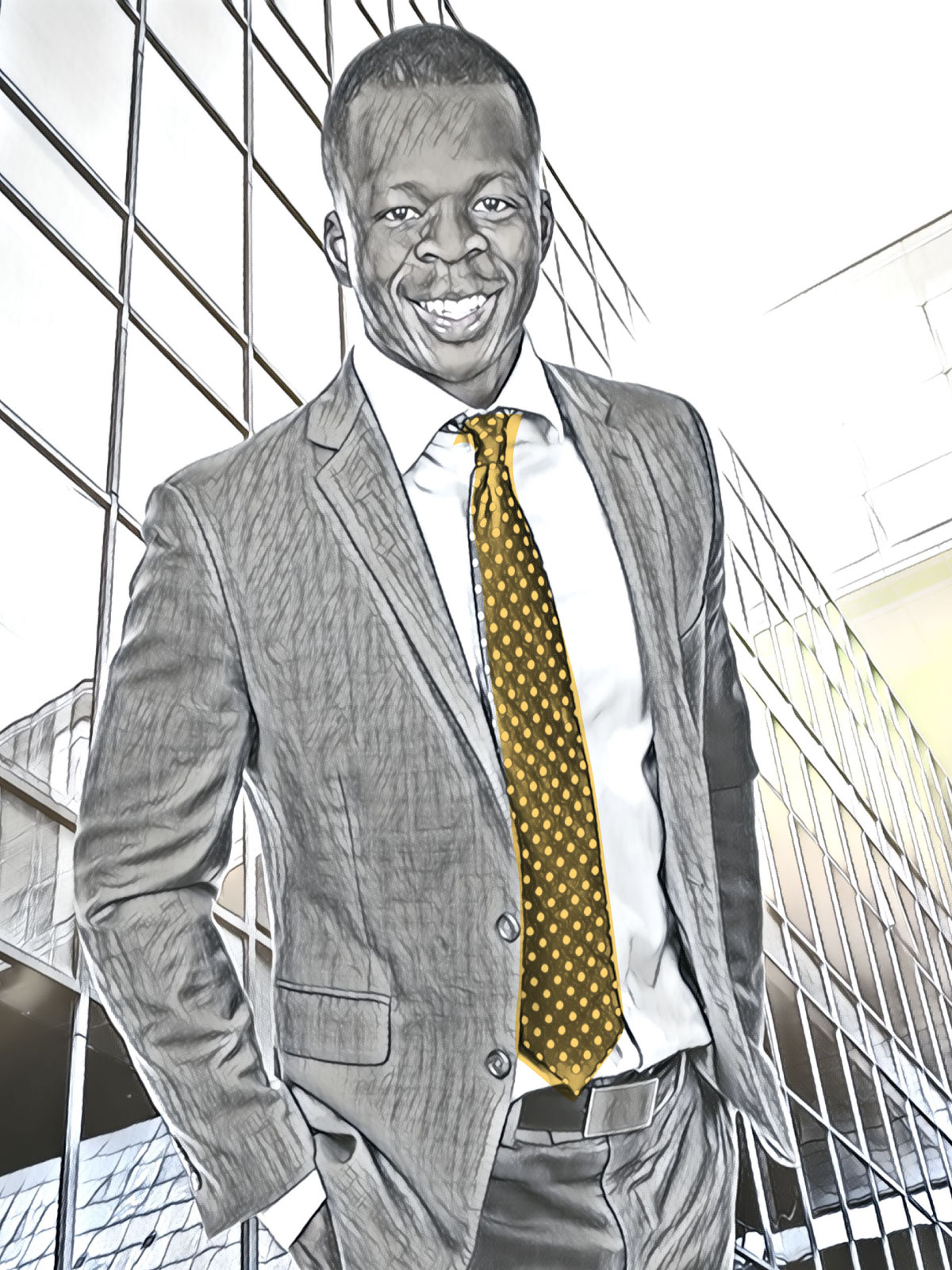
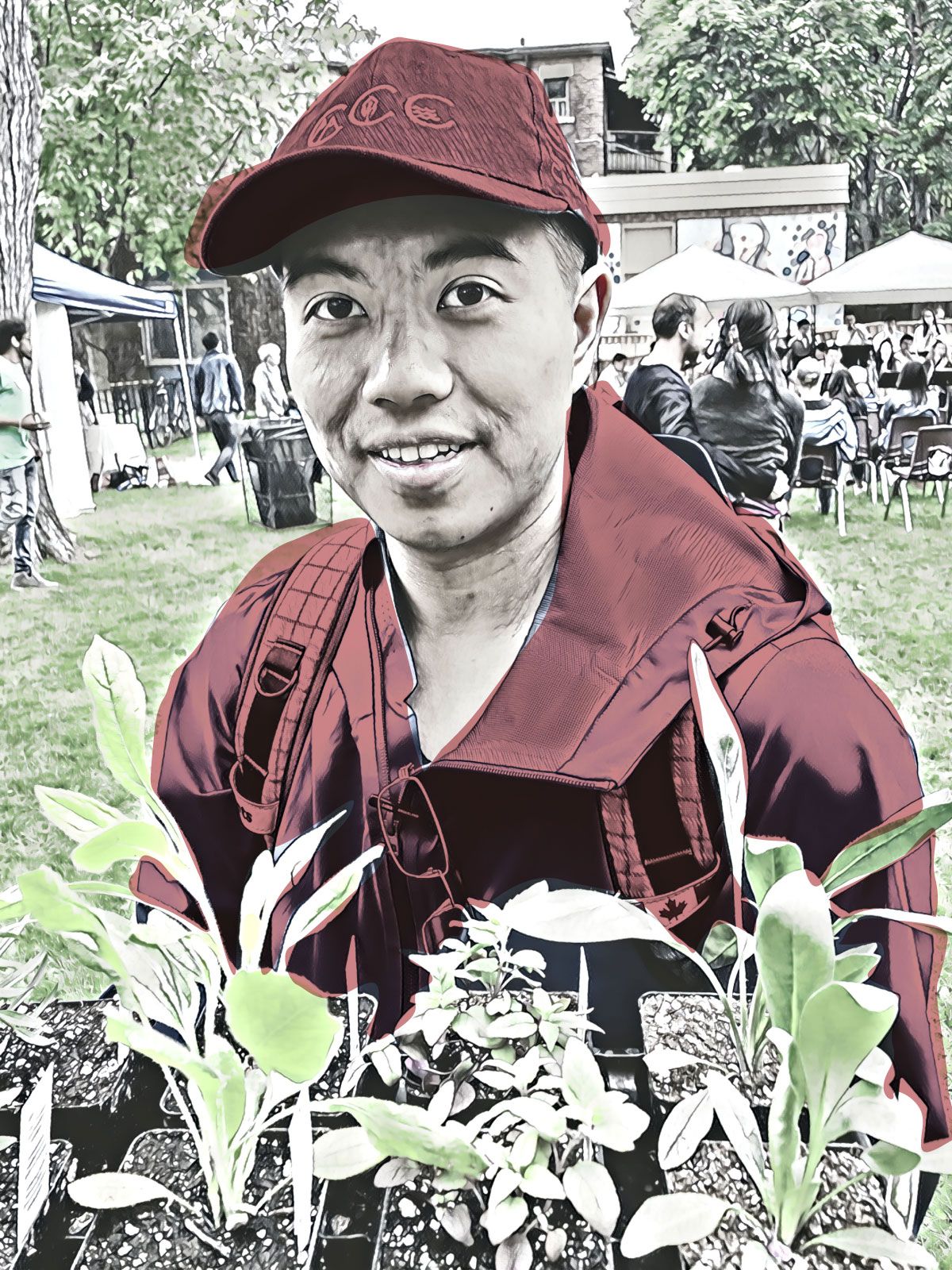
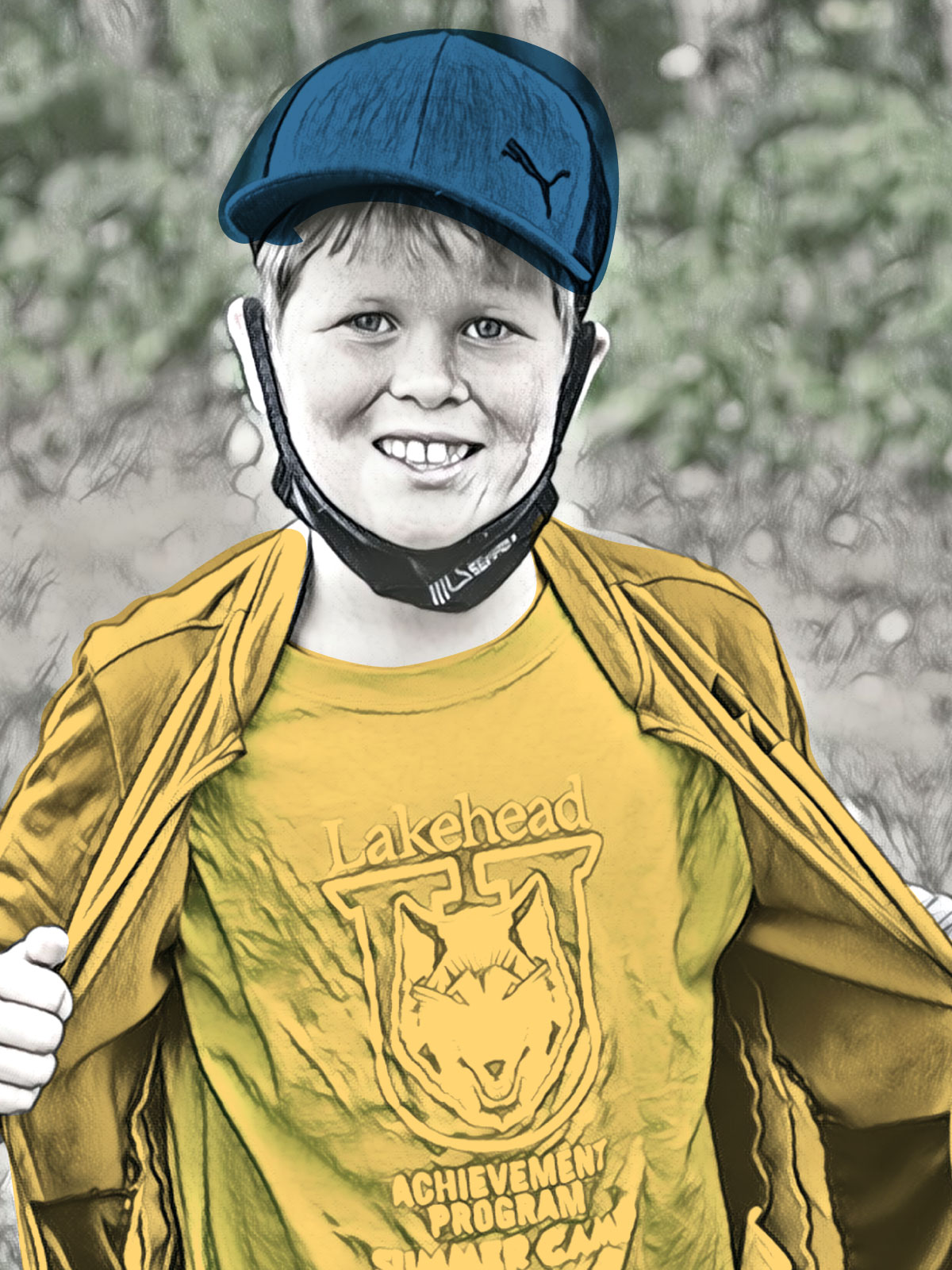
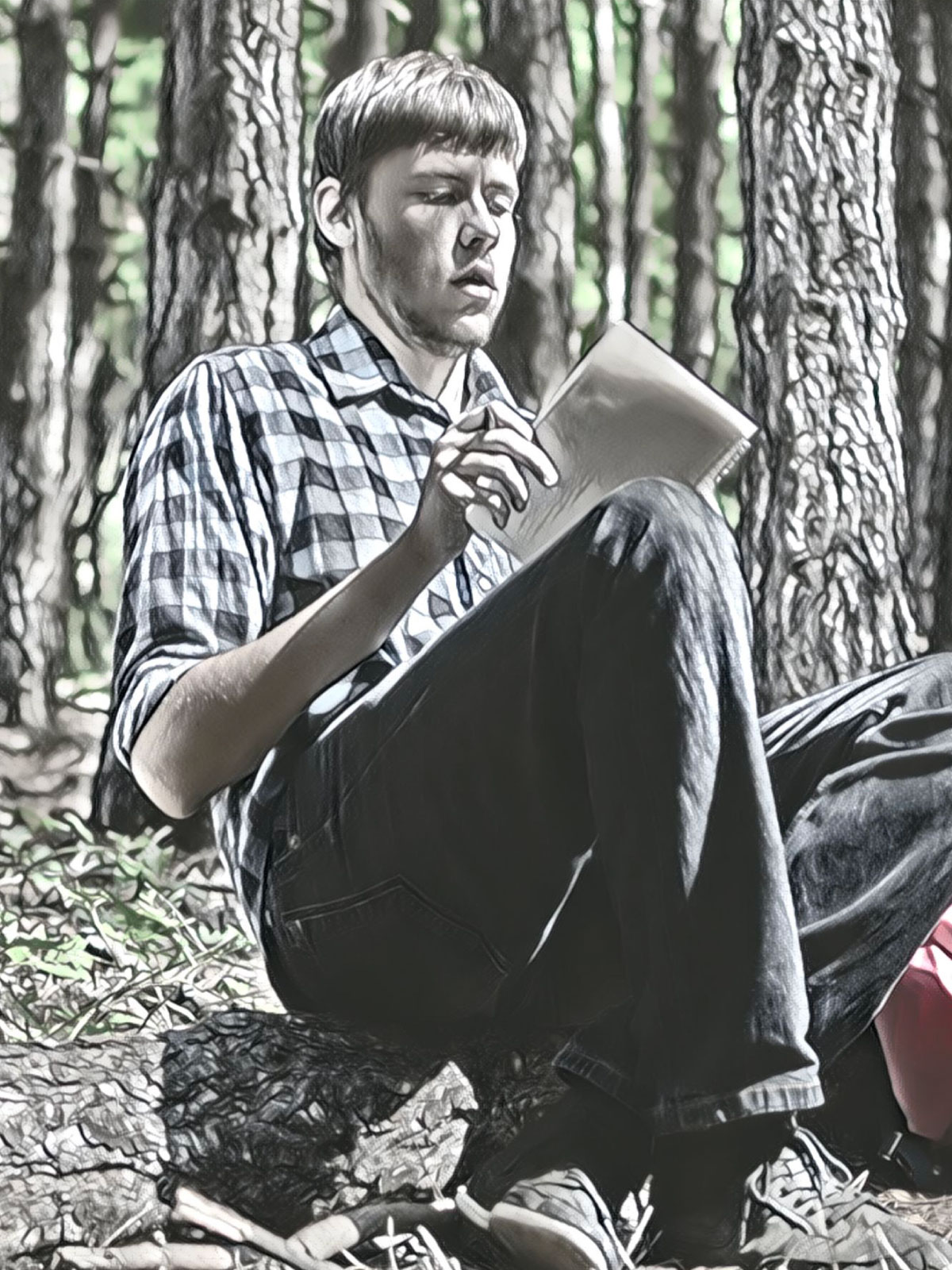
When the COVID-19 pandemic hit, Dr. Chris Murray, along with the rest of the world, was feeling panicked.
“I have three young children and I didn't know if we had to be constantly sanitizing surfaces and wearing masks all the time,” he says, “and you couldn't buy PPE (personal protective equipment) anywhere. Although I had lots of PPE stuff around my house because of my job, none of it was designed for children.”
Dr. Murray is an experimental physicist who typically conducts industrial research related to pollution-control technology such as biodegradable plastics, stormwater filters, and toxic gas sensors.
In March 2020, he swiftly switched his focus to designing do-it-yourself filter masks that the general public could make to protect themselves against the COVID virus. Dr. Murray began collaborating with a Thunder Bay campus research group — headed by graduate engineering student Andre Lafreniere — that was developing 3D printed mask parts and low-tech mask bodies.
In a video about the project, Andre explained:
“Our story started with a group of students that aimed to manufacture and redistribute PPE as a stop-gap solution to fill shortages throughout Northern Ontario. The initiative grew into a network of students, professors, doctors, staff, and industrial partners, selflessly working towards keeping people safe now and into the future.”
Dr. Murray concentrated his attention on the mask bodies.
“I wanted to measure how improvised materials perform as mask filters. Would a furnace filter or a vacuum cleaner filter work?” he says. “How about the booties you wear on your feet at the hospital?”
It was an ambitious project, so he recruited current and former students as research partners. Despite the fact that the working conditions were far from ideal, he found many eager volunteers including Sasha White, Kayla Snyder, and Dave Edgcumbe.
“The pandemic restrictions forced us to be creative,” he says. “The laboratories were closed, and I couldn't justify asking students to increase the risk to themselves, so we all worked remotely from our homes.”
Dr. Murray assembled equipment setups from scratch and dropped them off at his students' doors.
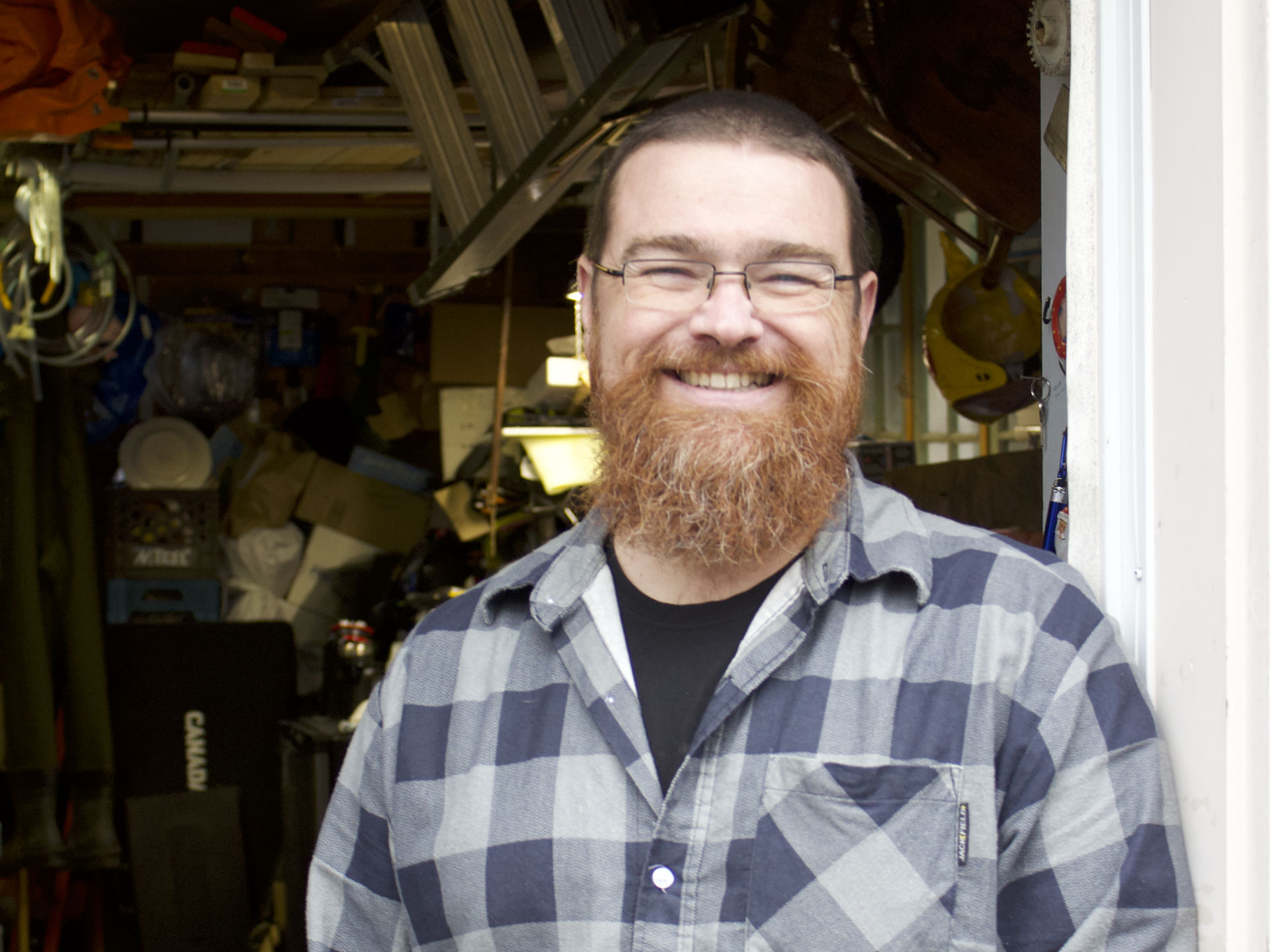
For his open-source mask research, Associate Physics Professor Dr. Chris Murray dropped off equipment and supplies at his students' doors and traded samples by the side of the road.
Soon, Dr. Murray and his students were toiling in their garages, living rooms, and barns. They made mask prototypes from cast-off items like an irrigation system for watering plants, aquarium pumps, and PVC pipes. All the training to conduct the research was done virtually over Zoom.
“At one point, I had six students on a Zoom call. I was trying to teach them how to do mask moulds, so they were covering their faces with plaster and bandages.”
Simultaneously, Dr. Murray was helping doctors at the SickKids hospital in Toronto who were trying to produce N95 masks.
“They'd give me supplies from their storeroom, like surgical wraps, and I'd test their breathability to see if they could function as mask fabrics.”
Both projects were “open-source” research, meaning that the information isn't copyright restricted and is available free of charge. Much of this research can be found on the website modularmask.com where you can download files that will enable you to print masks on 3D printers.
As Canada makes great strides in the fight against COVID-19, Dr. Murray is keen to express his gratitude to his official and unofficial partners — especially the students.
“It would have been easy to hunker down and wait until the restrictions lifted before doing the research. Instead, they said, ‘Yes, it will be harder, but we're going to do it anyway.’”
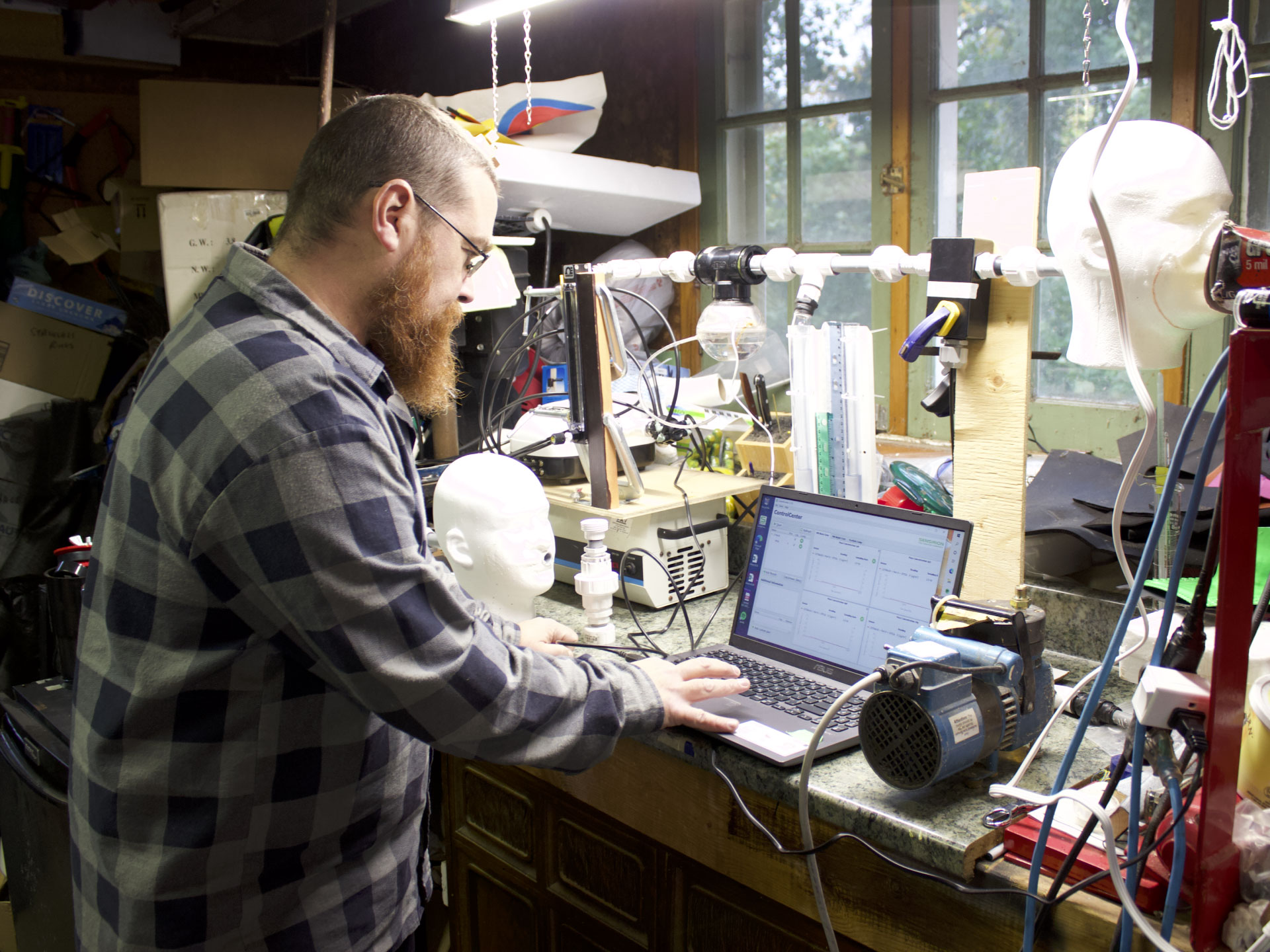
Dr. Murray testing mask prototypes in his garage lab.
In the face of the brutality of racism, Paul Popo-Ola (HBCom'10) is shaken, but unbowed.
The Lakehead alumnus has set his sights on helping Toronto inner-city kids escape the lives of poverty to which they are often condemned. In 2020, Paul and a group of friends set up the Black Health and Wealth Fund to provide university entrance scholarships to grade 12 students. It's Paul's latest advocacy project, and one close to his heart.
“My family left Ghana when I was eight years old to come to Canada,” he says.
They ended up in Toronto's Rexdale area — one of the toughest neighbourhoods in the country. “There's a lot of poverty and government housing,” Paul explains.
In Ghana, Paul's father was a bank employee and his mother was a registered nurse, but in their new homeland, they found themselves at the bottom of the social ladder. Paul's mother worked at McDonald's until she requalified as a nurse and his father worked in factories before becoming a church pastor.
Along with these hardships, their young son was confronting harmful prejudices and stereotypes.
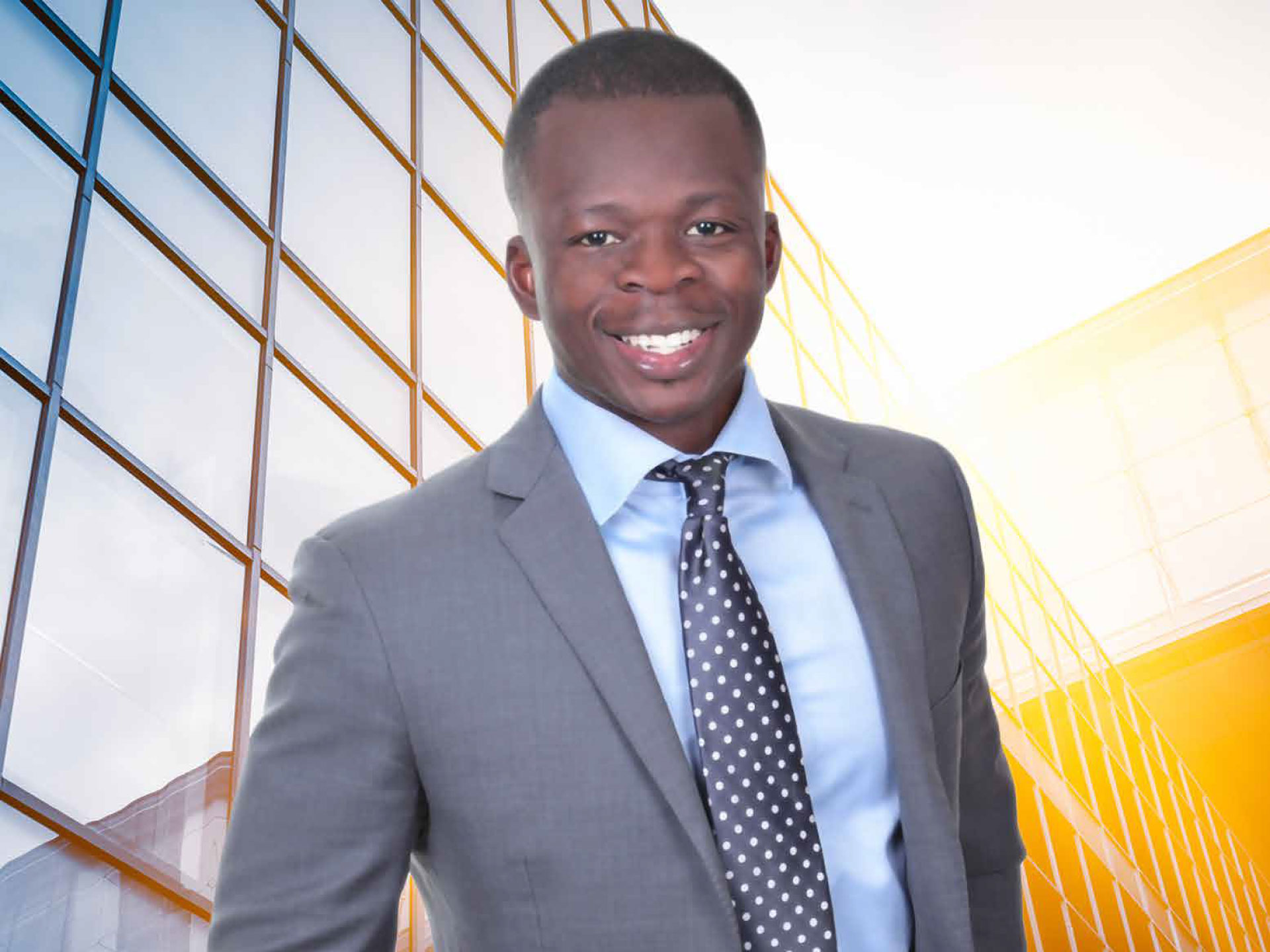
“Without people sacrificing and giving back to me, I wouldn't be where I am.”
“Most of my friends are Black, and when we were kids,” Paul says, “we thought the only things we could be were athletes, rappers, and drug dealers.”
Paul began getting into trouble, to the distress of his parents and older brothers, but the YMCA and Rexdale's Albion Neighbourhood Boys and Girls Club threw him the lifeline he needed.
“Sports got me out of the bubble I was trapped in. Coaches waived my registration fees and helped me buy basketball shoes,” he says. “If I got a bad grade, my coach would say, ‘Paul you can do better.’”
When he finished high school, Paul headed to Lakehead University on a basketball scholarship. He enrolled in the commerce program because it offered financial security and career avenues beyond athletics.
But Paul wasn't just concerned about himself. As a university student, he volunteered with the Thunder Bay Boys and Girls Club (he was named their 2011 Volunteer of the Year) and Shelter House.
Since graduating, Paul has become an investment advisor with RBC Dominion Securities based in Toronto. He frequently counsels newcomers to Canada, and he encourages financial literacy as the host of the Cash Rules Financial Podcast.
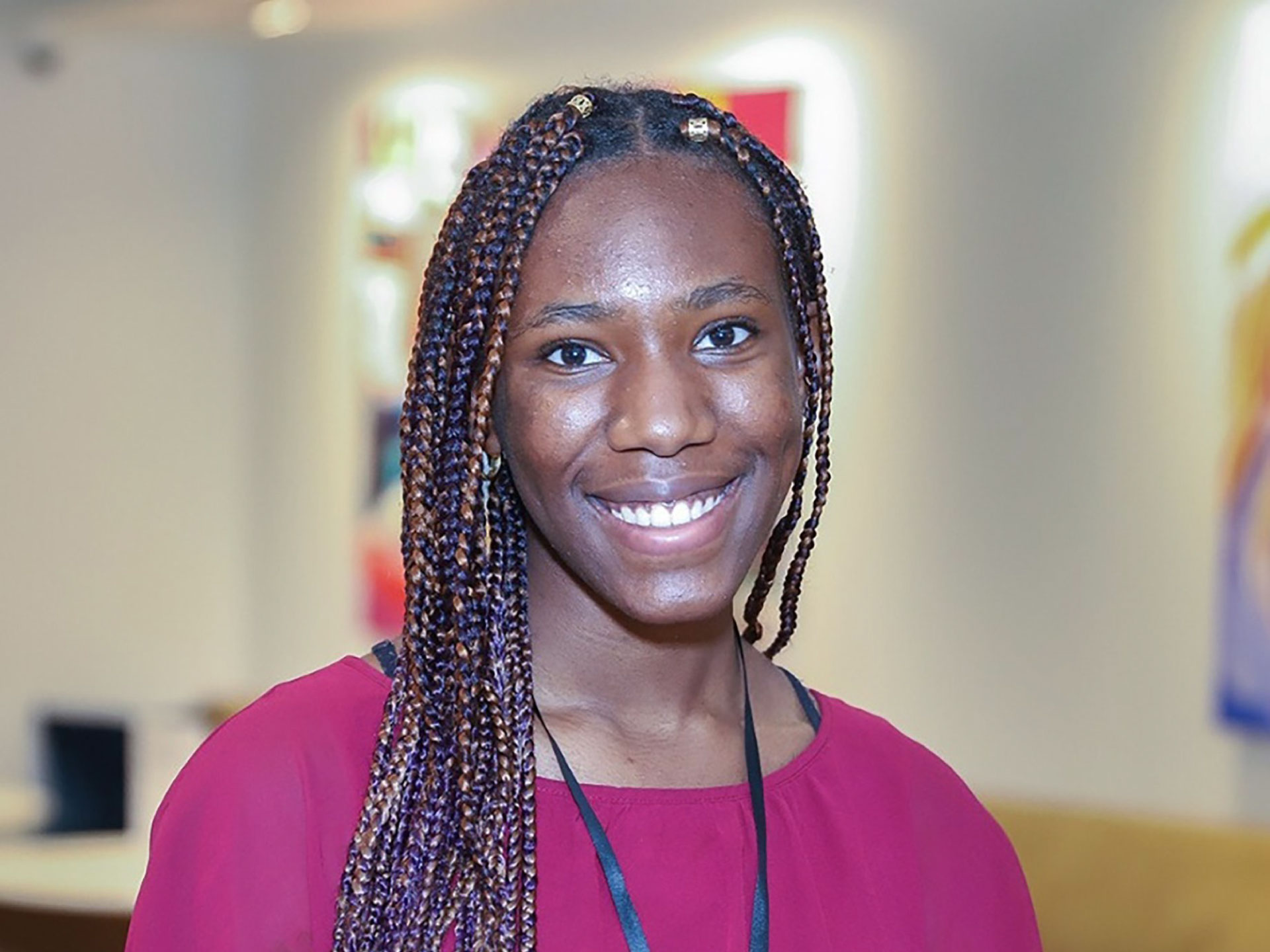
In 2021, high school student Praise Erianamie received the largest scholarship awarded by the Black Health and Wealth Fund.
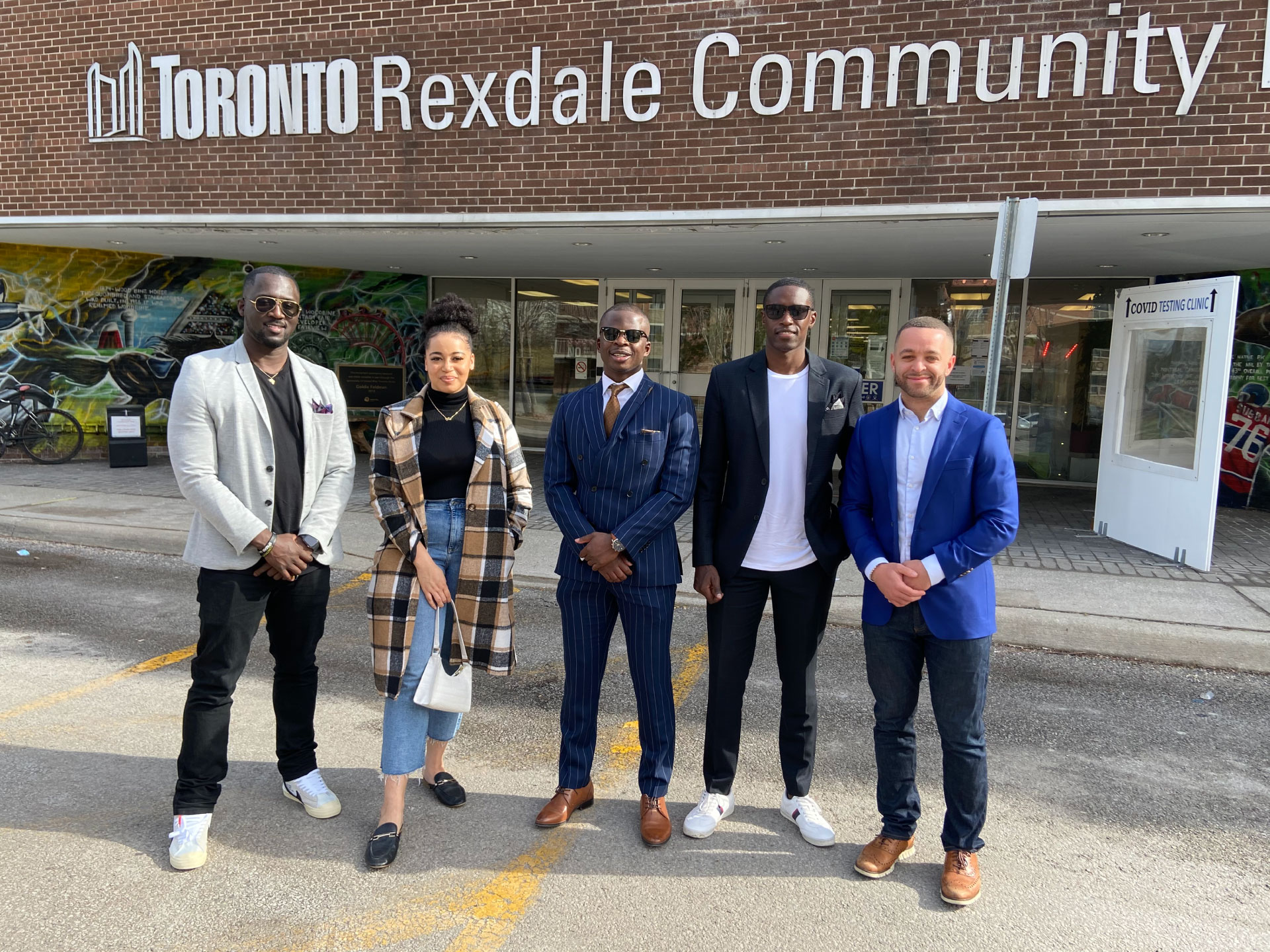
Paul (centre) and his fellow members of the Black Health and Wealth Fund executive are changing the lives of vulnerable youth.
His success, though, doesn't mean that the struggle for racial equality is over.
Paul and his friends were traumatized by videos of verbal and physical attacks against Black people — especially the murder of George Floyd by a Minneapolis police officer — that occurred in 2020. The assaults galvanized them to support the current generation of kids growing up in Rexdale through the Black Health and Wealth Fund.
They quickly raised over $40,000 for 12 scholarships and forged connections with Canadian universities, including Lakehead, who donated tuition credits, meal plans, and other services to the students (next year, they hope to increase the number of scholarships). They partnered with the Albion Neighbourhood Boys and Girls Club because, as an existing non-profit, they had the authority to distribute scholarship funds.
The Black Health and Wealth Fund members are also committed to nurturing the students.
“We didn't want to hand the kids money and say, ‘See you later,’” Paul says. “Every one of them received mentorship in different areas — financial literacy, public speaking, good life habits, healthy living.”
Although Paul is doing his part to make the world a place where everyone is valued, he would like to see the media — and ordinary citizens — better educate themselves and overcome their biases.
“Black Canadians aren't monolithic,” he says, “so don't put us in a box, just give us a fair playing field.”
Watch the Black Health and Wealth Fund video to learn more about these transformative scholarships and how you can make a difference.
In 2021, education student Michael Chen's team won the “Best of the Rest” prize in the Climate Change-Makers Challenge Hackathon.
The competition was fierce, with more than 130 youth from 15 countries and five continents.
Michael and his three teammates from Dalhousie University, Stanford University, and Rutgers University—New Brunswick used their ingenuity to devise a practical solution to fight climate change and food insecurity.
And they did it in just 48 hours.
“It was nerve-wracking,” Michael says. “We were all running low on sleep, trying to get it finished.”
Their idea tapped into Michael's passion for protecting the natural world. He's been an environmental advocate since his teens — and in his spare time he teaches immigrant youth about gardening and volunteers with the South Markham Food Security Initiative.
This expertise came in handy during the hackathon when Michael's team developed their Food Forests for All concept — an educational platform that gives people the power to make their communities more resilient.
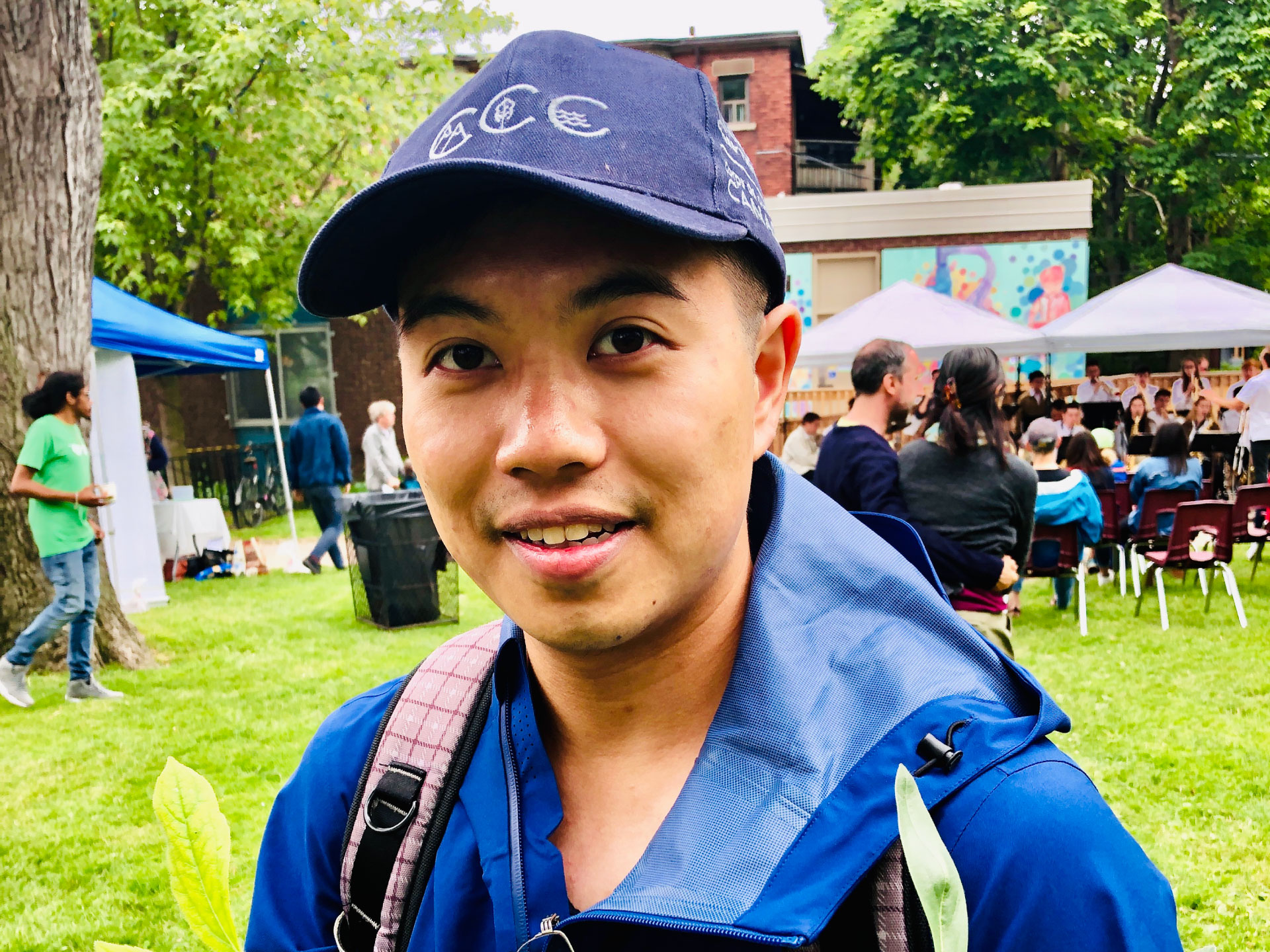
“Food isn't created just for us,” says Michael Chen (BEd'21), “it's also for birds, pollinators, and other animals.”
But what is a food forest?
“Food forests are self-sustaining systems of trees and plants that can be established in cities and urban areas,” Michael explains. “They mimic a natural forest.”
A food forest has seven layers of plants including fruit and nut trees, shrubs with edible berries, herbs, mushrooms, root vegetables, and fruit-bearing vines.
“They're a longer-term solution to climate change and food insecurity,” Michael says.
Food forests attack these problems on multiple fronts. Since they grow vertically, they can flourish in urban areas that have limited green space. They offer a variety of crops that all community members — human and animal — are welcome to harvest, and they reduce carbon dioxide emissions generated by transporting food long distances.
Food forest trees also slow down the warming of the planet by trapping carbon dioxide. A large black cherry tree can sequester 210 kilograms of carbon dioxide in the first 10 years after being planted, and more than 6,300 kilograms during its lifetime.
Although food forests have existed for thousands of years, they've been crowded out by large-scale industrial agriculture that's accelerating climate change.

Food forests decrease carbon emissions caused by transporting food from different parts of the world via planes, ships, and trucks.
“Current farming practices are vulnerable to soil erosion and extreme weather events because they rely upon clearcutting and have minimal crop diversity.”
Plant for Change: Grow and Give Back, the web platform that Michael and his teammates designed, provides many resources including an interactive map displaying established and in-progress food forests across North and South America. A second interactive map allows website visitors to connect with local Indigenous groups and knowledge keepers to learn about Indigenous agricultural methods.
“You can get inspiration to start your own food forest, volunteer, and submit information about your food forest,” Michael says. “I learned so many things through the hackathon,” he adds. “One of the most important was how to do companion planting — a farming method that Indigenous people have perfected.”
In the southern Ontario region where Michael lives, for example, the Haudenosaunee people have always grown corn, beans, and squash together. These crops are known as the “Three Sisters.” Corn provides a natural trellis for the beans to grow up, beans take nitrogen (a nutrient that allows plants to grow) from the air and return it to the soil, and squash provides groundcover so that the soil remains moist and unwanted plants won't grow.
“There's a wealth of knowledge that Indigenous Peoples have been sharing about forests and agriculture, we just haven't been listening,” Michael says.
He believes now is the time to open our ears, pick up a shovel, and take action to save our planet.
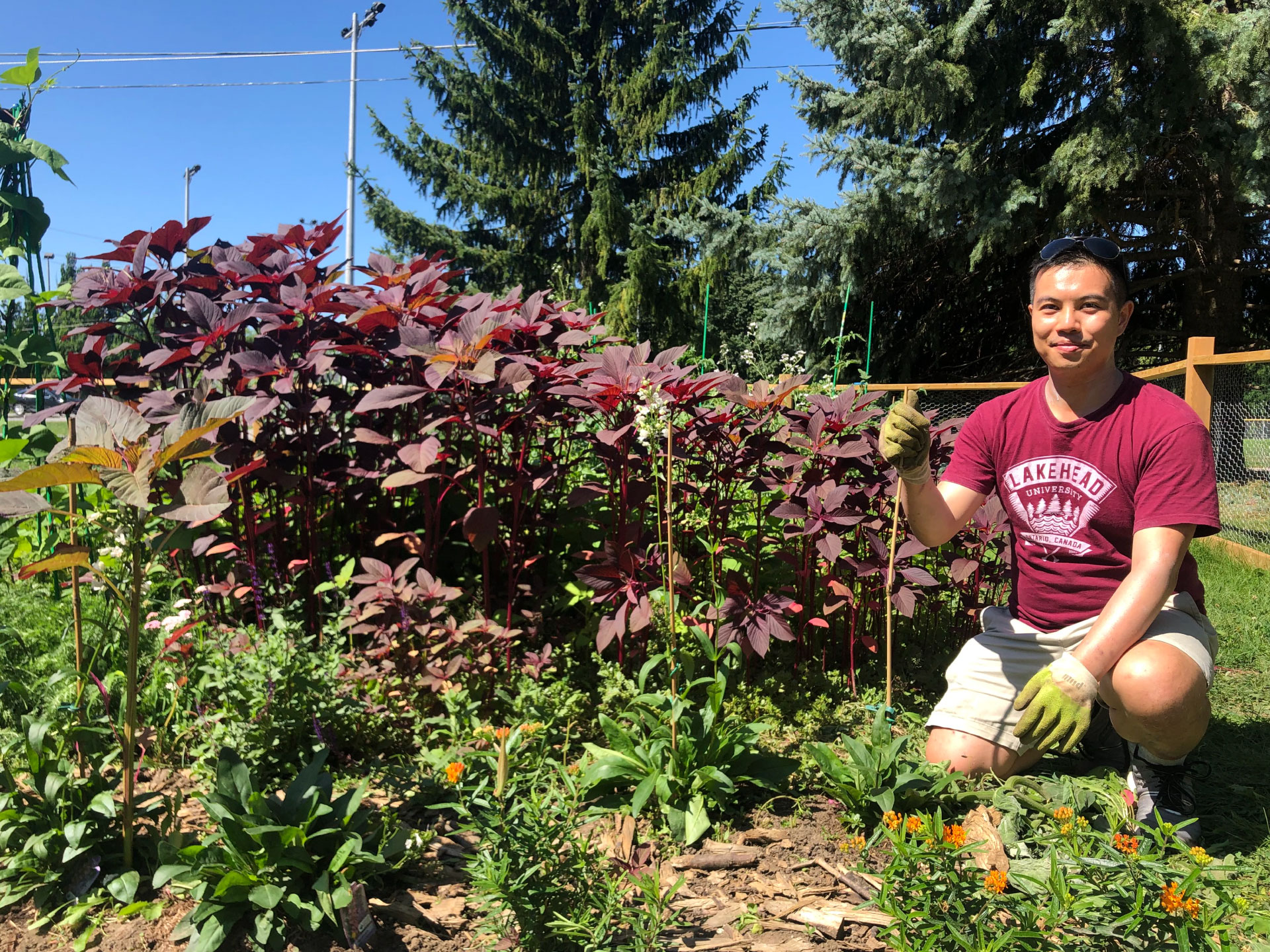
Michael graduated with his Bachelor of Education in May 2021 and is qualified to teach kindergarten to grade 6 students. He also has a journalism degree from Ryerson University.
When she was just a high school student, Megan Rafuse (HBSW'09) lost her mother to cancer.
“Her death really drove my career choices,” Megan says. “It made me unafraid to take risks, because I learned that you don't get a second chance to live your life.”
In a short period of time, this Lakehead alumna has transformed her private counselling practice into a company with services and clinicians across Canada. She is the CEO of Shift Collab — a mental wellness company that offers individual therapy and counselling, public speaking, and education.
“Typical challenges Canadians are dealing with,” she says, “include anxiety, depression, grief and loss, life transitions, obsessive compulsive disorders, and eating disorders.”
Megan grew up on Cape Breton Island and did an undergraduate degree at St. Francis Xavier University before completing her Honours Bachelor of Social Work at Lakehead's Orillia campus. She then went on to get her master's at the University of Toronto and work at SickKids hospital.
Her professional life, though, began in earnest organizing home care for seniors with an Ontario Community Care Access Centre (CCAC), while simultaneously expanding her private practice.
Five years later, Megan realized how much she loved being a clinician and that having two jobs wasn't sustainable, prompting her to become a full-time mental health therapist.
“It's such a privilege to share a journey with someone and witness their growth,” she says. “I believe that when one teaches, two learn.”
Within three months, her private practice was entirely full, spurring her to hire 10 clinicians and a receptionist. Around the same time, she was chatting with Jordan Axani, who had a business offering mental health workshops and training for workplaces.
“We both wanted to make mental wellness more accessible, so we decided to work together,” Megan says.
Although the founding of Shift Collab should have been a time of excitement and celebration, it became a period when Megan's perseverance was tested.
“I suffered a catastrophic major concussion in a car accident and was off work for six months while I recovered,” she says.
But this setback didn't slow her down for long. She and Jordan, who is also her life partner, threw their energy into building Shift Collab.
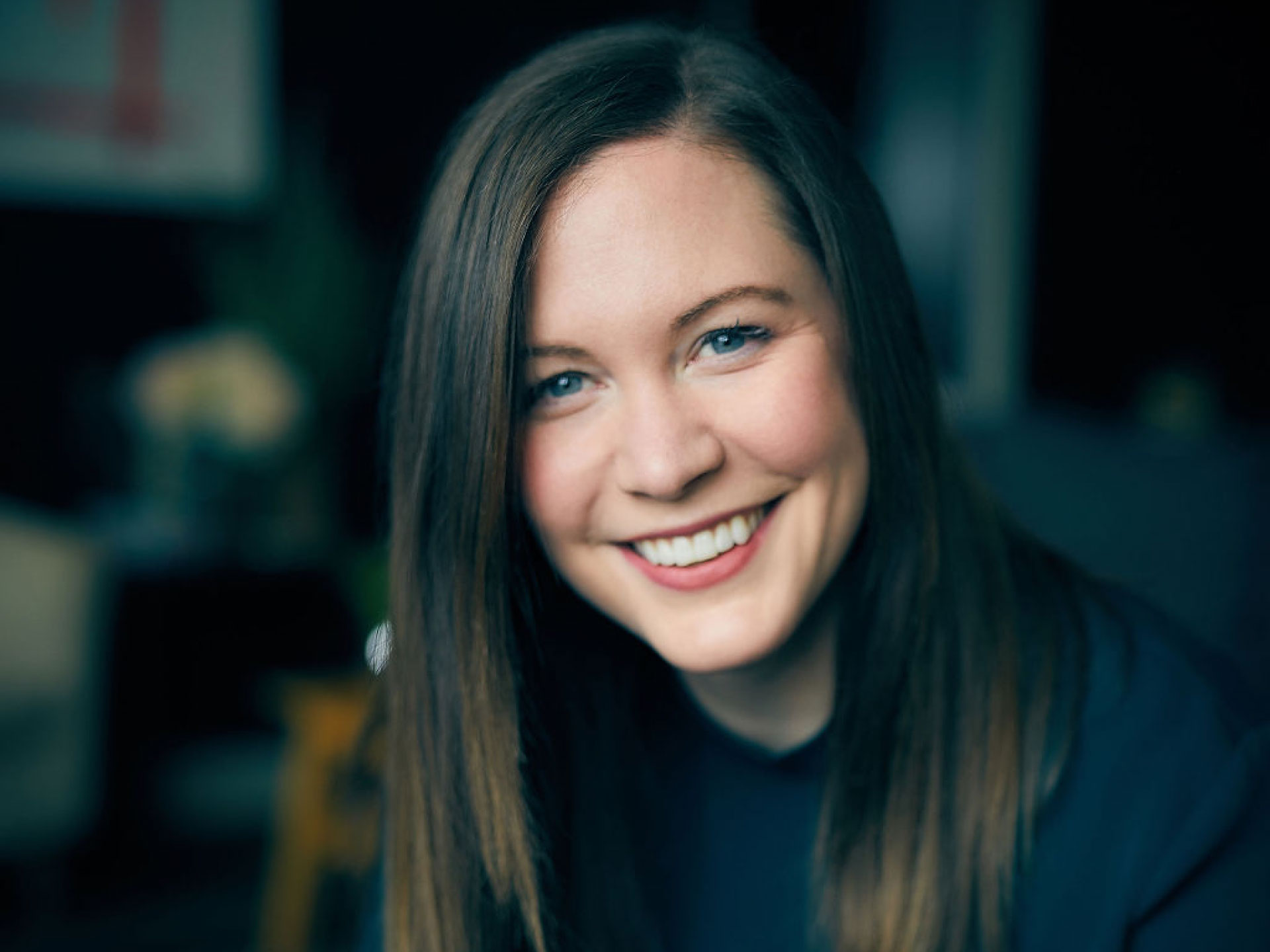
“Often people think clinicians are stoic and show up with a clipboard, but that's an old model. Good rapport is the most accurate predictor of the best therapeutic outcome. Being a human first is number one — that's what we really pride ourselves on.”
Today, their company has several divisions. Shift Collab provides individual therapy and counselling, and Shift People provides mental health workshops, public speaking, and training for businesses and organizations throughout North America.
“Our goal is to challenge the standard employee assistance program — and offer more robust and innovative programming,” Megan explains.
Through a partnership with the Maple network of virtual health care providers, they have 85 clinicians available in cities from coast to coast.
“I'm really proud of the fact that we offer practicums to Lakehead students and that we've hired nine Lakehead grads as clinicians,” Megan adds.
Their Best Practice division is a community of over 1,000 therapists supporting each other in building modern mental health clinics.
Shift Collab was also responsible for joining forces with an insurance company to create Real Campus, Canada's largest independent student assistance program. “It provided mental health counselling to about 250,000 students, paid through their student benefits.”
Since she's started her career, Megan has seen a huge shift in people's willingness to speak out about mental health. “They don't wait until it's a crisis before getting help,” she says.

“We're in a society where it's very easy to compare our lives to someone's social media highlight reel. But we have to remember, it's just their reel — not their real life.”
“The United Nations and the Canadian government have recognized housing as a human right,” says Dr. Rebecca Schiff, “and I hope my research will help uphold this right.”
Dr. Schiff is a Lakehead professor and Department of Health Sciences chair who is passionate about social justice, human rights, and the environment.
“Most people are only two or three paycheques away from being homeless. Someone could easily lose their job, fall ill, or become a victim of domestic violence,” she says.
“It's such a trap once you're in a shelter,” she adds. “People's identification is often lost or stolen, so they can't apply for jobs, and saving enough money to come up with first and last month's rent is almost impossible.”
And simply having a roof over your head is not the same as having a home.
“I'm committed to ensuring that everyone has a home that is safe and culturally appropriate. Not everyone lives in small nuclear families.”
Dr. Schiff is co-leading a large research project called At Home in the North, funded by the Social Sciences and Humanities Research Council (SSHRC), to investigate northern — and rural northern — homelessness.
“Rural homelessness is an under-recognized problem in Canada,” she says.
Dr. Schiff isn't entirely sure why homelessness is often higher in rural and remote areas compared to urban areas.
“There is, however, less affordable housing and fewer support services in rural areas. Also, rural housing is more likely to be in poor condition.”
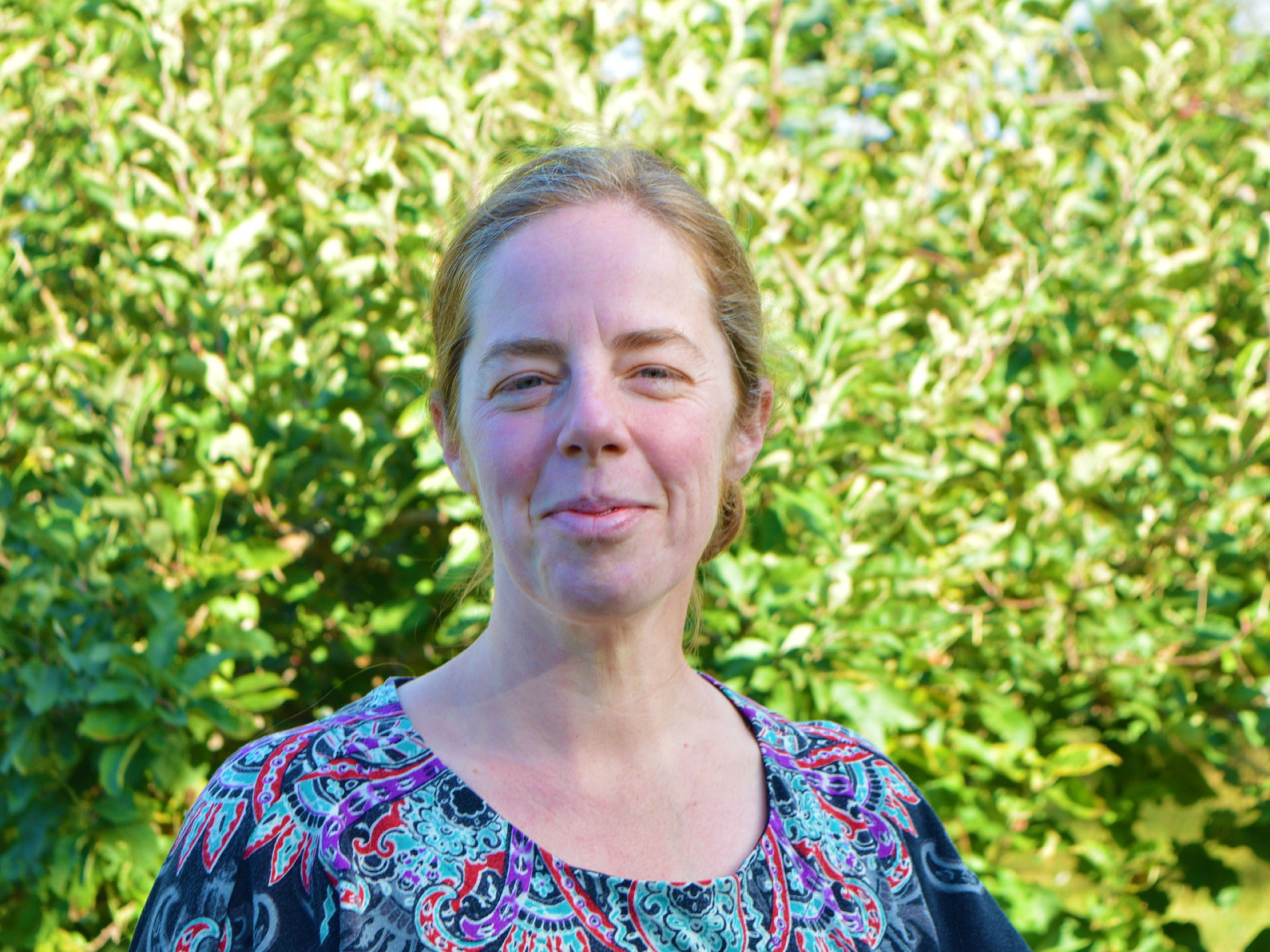
“I'd like to see Canada reach a state where our homes are designed and built to have the least impact on climate and the environment.”
As part of her At Home in the North research, Dr. Schiff co-wrote a paper for an international journal — Housing, Care and Support — about Thunder Bay's COVID-19 outbreak among people experiencing homelessness.
“We learned that Thunder Bay's homelessness rate is double the rate in Toronto and Calgary and four times the rate in Vancouver,” she says.
For her research studies, Dr. Schiff and her colleagues have surveyed managers and staff at homeless shelters and support organizations across the country.
“The COVID-19 pandemic has created many challenges,” she explains. “People experiencing homelessness are often in poor health, making them more susceptible to infection. Shelters in Thunder Bay were operating at 150% capacity before the pandemic. Suddenly, because of social distancing mandates, they have to operate at 50% capacity.”
Despite these setbacks, Dr. Schiff says there have been opportunities for homelessness organizations to respond to the needs of people without secure housing.
“The federal government poured a lot of funding into helping the homeless population. This is enabling organizations to create new programs, purchase PPE, and build overflow centres — things they'd wanted to do before the pandemic.”
Through research with Community Housing Canada, Dr. Schiff has discovered that living in community housing — particularly co-op housing — improved people's resiliency and mental health during the pandemic.
Dr. Schiff also wants to understand how individuals who help people experiencing homelessness are coping. She's the lead on a Canadian Institutes of Health Research COVID-19 grant, assisted by Lakehead psychology professor Dr. Deborah Scharf. They're examining the pandemic's effect on the mental health of Canadian frontline workers in organizations that serve the homeless.
She hopes their findings will lead to better staff supports.
“In a country as wealthy as Canada, people shouldn't be without stable housing. Homelessness is a product of systemic issues, but we're placing the burden on individuals for a societal failing.”
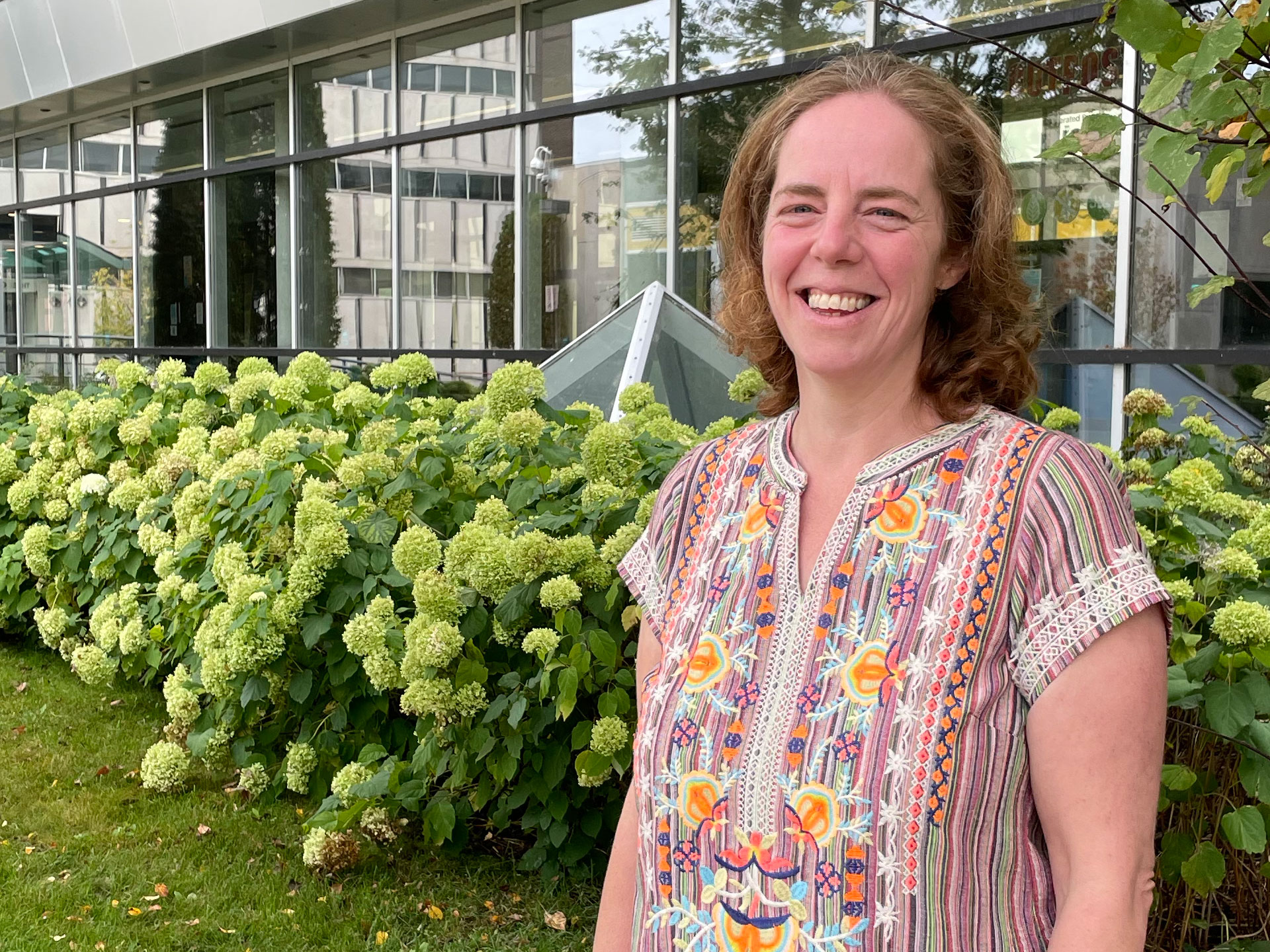
Dr. Schiff began her career by focusing on sustainability and environmental issues. Now she also examines social justice issues related to homelessness.
Most of us can remember Grade 4 like it was yesterday.
It was a time of best friends and mortal enemies, scraped knees and peanut butter and jelly sandwiches…and dreaming about what we wanted to be when we grew up.
Today, children across Northwestern Ontario are just as eager to discover their talents and abilities. They want to learn how to give back to their families, their communities, and the world.
But for some children, the deck is stacked against them.
They may go to an underfunded school or a school that doesn't reflect their experiences, making them feel invisible. Others may not have access to nutritious food and clean drinking water.
That's why the Peter Gilgan Foundation is joining together with Northwestern Ontario youngsters to help them overcome barriers and put them on the path to becoming college and university graduates.
“I want a world where all kids recognize their self-worth and have the opportunity to flourish,” says Foundation Program Officer Stephanie Trussler. “Every child should have avenues to fulfill their potential.”
The Foundation's mission is to improve the lives of children and families by empowering charities that help the world transition to a more healthy, prosperous, and sustainable future.
The Foundation has made an extremely generous multi-year gift to Lakehead University's Achievement Program — an initiative that helps children facing social and financial barriers to higher education.
“The support of the Peter Gilgan Foundation is making a huge difference to our students,” says Achievement Program Coordinator Amanda Stefanile.
“During the pandemic in 2020-21, we were able to offer virtual programming, as well as in-person summer camps, to our 198 students in Thunder Bay and the surrounding region.”
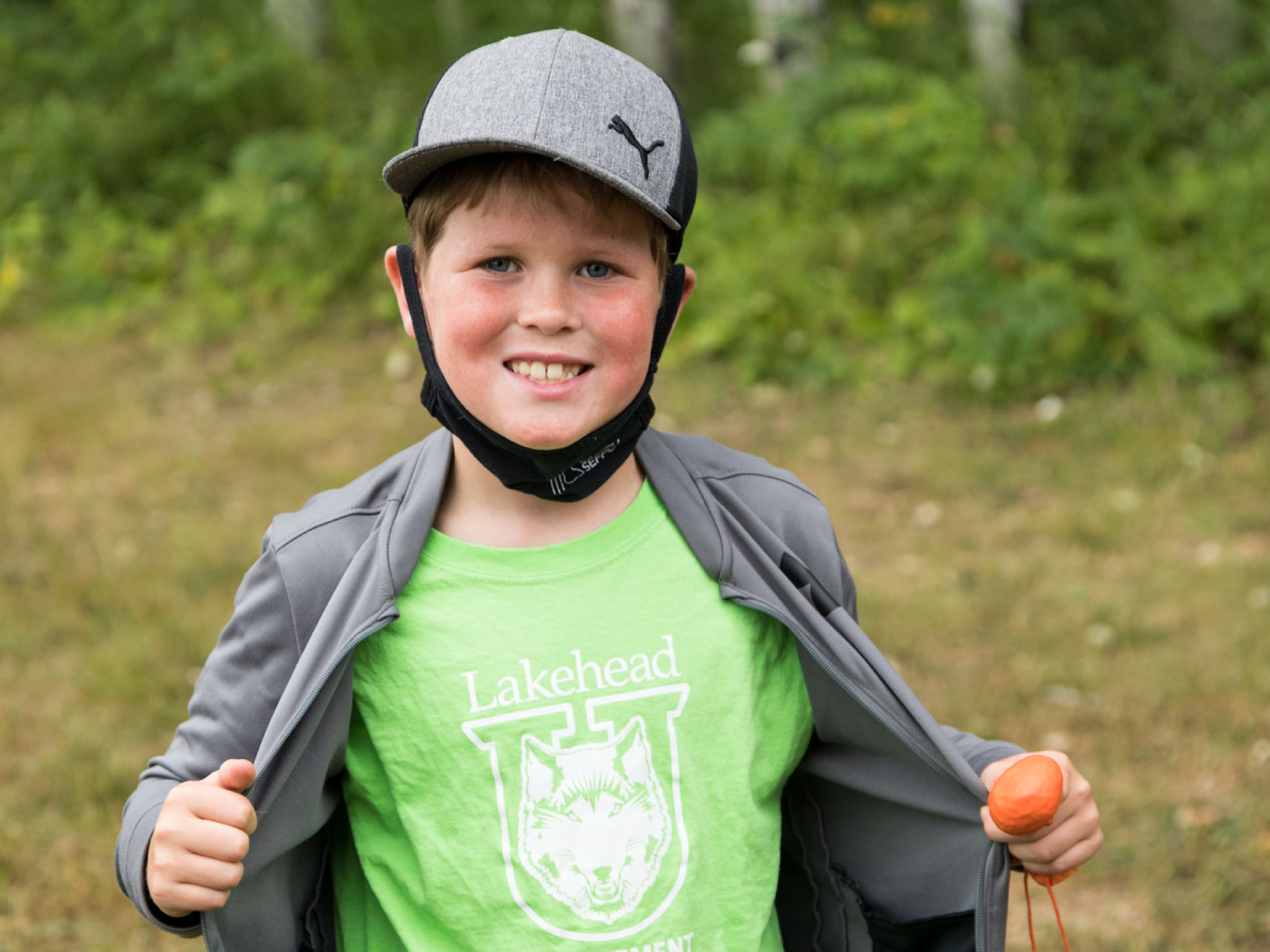
“I want a world where all kids recognize their self-worth and have the opportunity to flourish,” says Foundation Program Officer Stephanie Trussler. “Every child should have avenues to fulfill their potential.”
Students in the Achievement Program take part in educational, recreational, and cultural activities — on campus, in the community, and in their schools — beginning in Grade 4 and continuing until they finish Grade 12.
“The hands-on experiences Lakehead offers the students are so wonderful,” says Stephanie. “I especially like the science experiments and the nursing work with training mannequins.”
When Achievement students visit Lakehead's campus for the first time, they connect with varsity athletes and mentors who engage them in fun sports and recreational activities. This helps the children feel like they belong in a university setting.
“I remember walking around campus with Mom, and her saying, ‘Look where you'll go when you're older,’” says Lakeishia Meekis.
Lakeishia is from Sandy Lake First Nation, and in June 2021, she became a member of the first group of young people to complete the Achievement Program. She's since been accepted into Lakehead's Indigenous Transition Year Program and hopes to pursue a degree in nursing or gender and women's studies.
The Peter Gilgan Foundation's gift not only funds vital programming. Their generosity also made it possible to create a comprehensive student database to run the Achievement Program more efficiently.
The Foundation is even helping Achievement Program students once they finish high school by covering the cost of the Ontario Universities Application Centre fee that students must pay when applying to university — a cost that can deter students from even considering higher education.
“It's great to see that many Achievement Program students are first generation university and college students,” says Stephanie. “They'll have an exponential impact on subsequent generations — their kids and grandkids.”
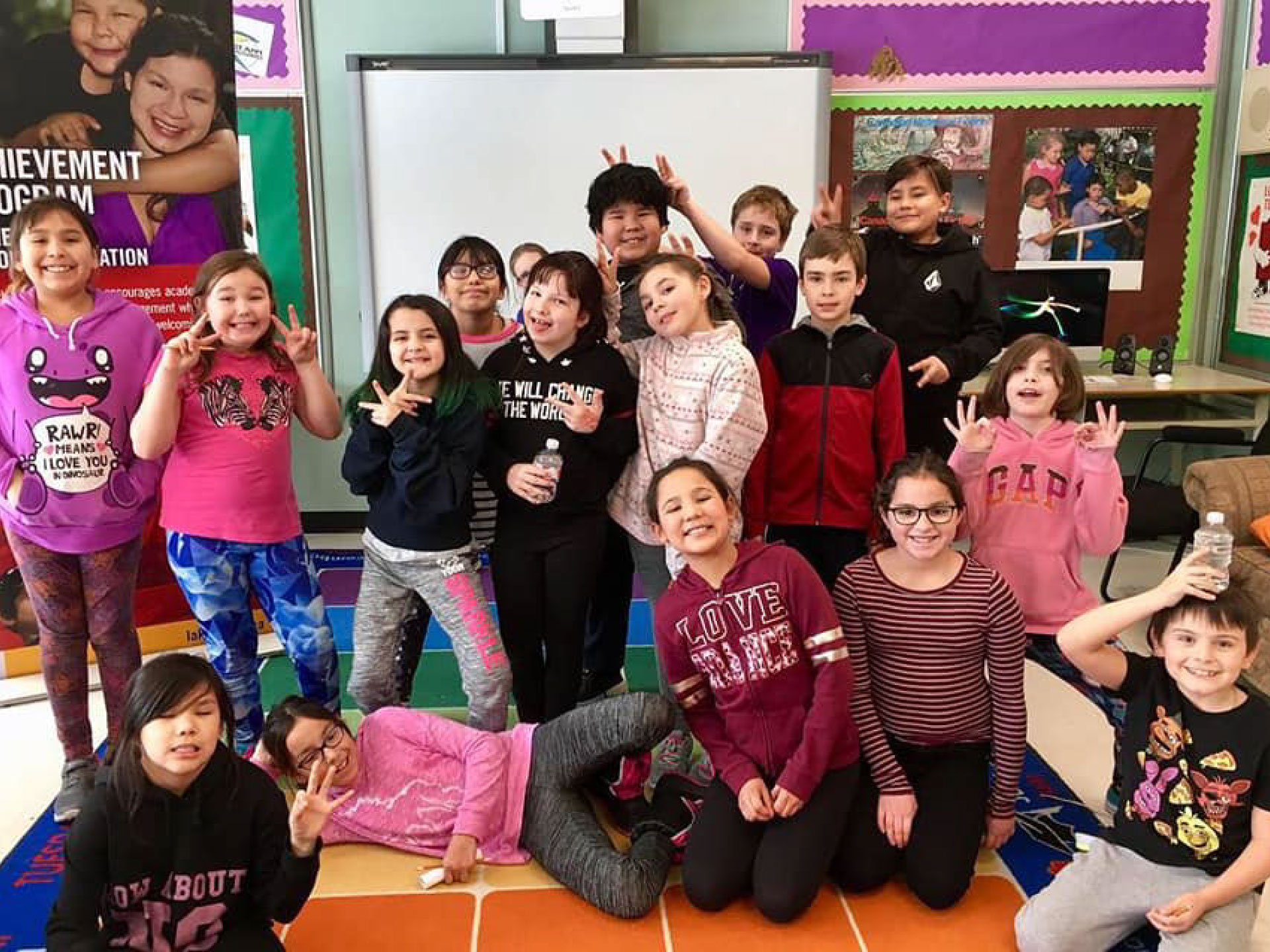
Students in the Achievement Program take part in educational, recreational, and cultural activities — on campus, in the community, and in their schools.
Hundreds of high school students have been exploring the woods and wetlands of Simcoe County and learning how to protect fragile ecosystems.
They're all enthusiastic members of the Youth Naturalist Program - part of Lakehead Orillia's Ontario Master Naturalist Program.
“It's like nothing I've ever experienced before,” says Grade 11 student Grace Barks. “It's completely changed my perspective on a lot of things in life in a good way. There is no other program like it.”
In a time when most teenagers are glued to their screens and schools are facing budget cuts, how is this possible?
The answer: the Community Foundation of Orillia and Area (CFOA).
The CFOA is one of several generous donors whose financial support allows Lakehead to offer the Youth Naturalist Program.
The CFOA is a public foundation that's passionate about meeting the most pressing needs of charities in the Orillia area. They accept contributions from donors, invest them for long-term growth, and distribute the earnings to charities.
“We enable donors to give to whatever local charity they choose,” explains CFOA President Michael Gordon. “We also work with charities to build their own endowment fund so that they become more sustainable.”
“The more money that is available, the less that needs to be raised from the bingos, galas, and golf tournaments that charities constantly have to do,” Michael adds.
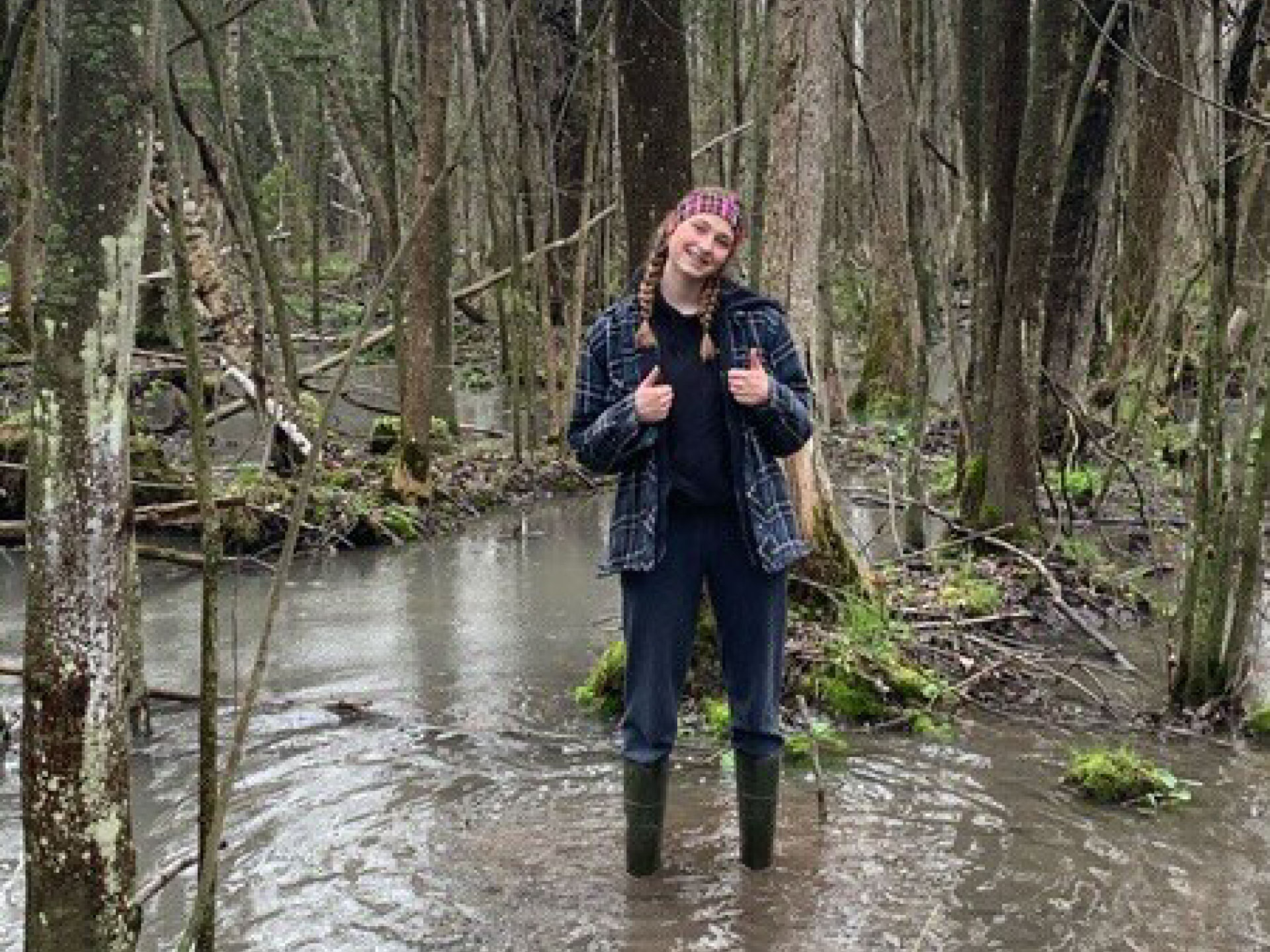
“It's like nothing I've ever experienced before,” says Grade 11 student Grace Barks. “It's completely changed my perspective on a lot of things in life in a good way. There is no other program like it.”
The Ontario Master Naturalist Program is run by Lakehead's Office of Community Engagement and Lifelong Learning (CELL), which offers programs, courses, and workshops to Lakehead's surrounding communities.
“Last year, 1,436 community members participated in CELL programming,” says CELL Director Dr. Linda Rodenburg. “The CFOA has played a major role in not only the success of specific programs — but in the success of the Office of Community Engagement and Lifelong Learning itself.”
Retired school principal Anne Hilliard knows this well. Because of a grant from the Community Foundation of Orillia and Area, Anne and Linda were able to work with an advisory group of seniors to establish Third Age Learning Lakehead (TALL) in Orillia.
TALL is a program that gives people aged 50 and older access to thought-provoking lectures on a multitude of topics delivered by experts in their fields.
The range of speakers has become even more impressive since TALL shifted to online Zoom talks during the pandemic. They've had speakers from Harvard and Berkeley and from countries as far away as the United Kingdom, Singapore, and Australia.
“Every time I meet someone who realizes I'm connected to TALL,” Anne says, “their first words are: 'That whole series is amazing, I'm so glad you brought it to Orillia.'”
As well as supporting CELL initiatives, the Community Foundation of Orillia and Area helps Lakehead students by funding the University's Tudhope Family Bursary. This annual award is given to a full-time student from Simcoe County entering their first year at Lakehead Orillia.
“The fact that Lakehead has received six successful CFOA grant applications in the last few years speaks volumes about Lakehead's impact on the community,” Michael says.
But for Lakehead, it's the CFOA that's given us the power to make a difference.
It reminds Anne of a belief expressed by Rema Jamous Imseis, the Canadian representative with the United Nations High Commissioner for Refugees, and a past TALL speaker: It takes just one person extending their hand to another to change the lives of many.
And that's exactly what the Community Foundation of Orillia and Area has been doing for Lakehead University students and the people of Simcoe County.
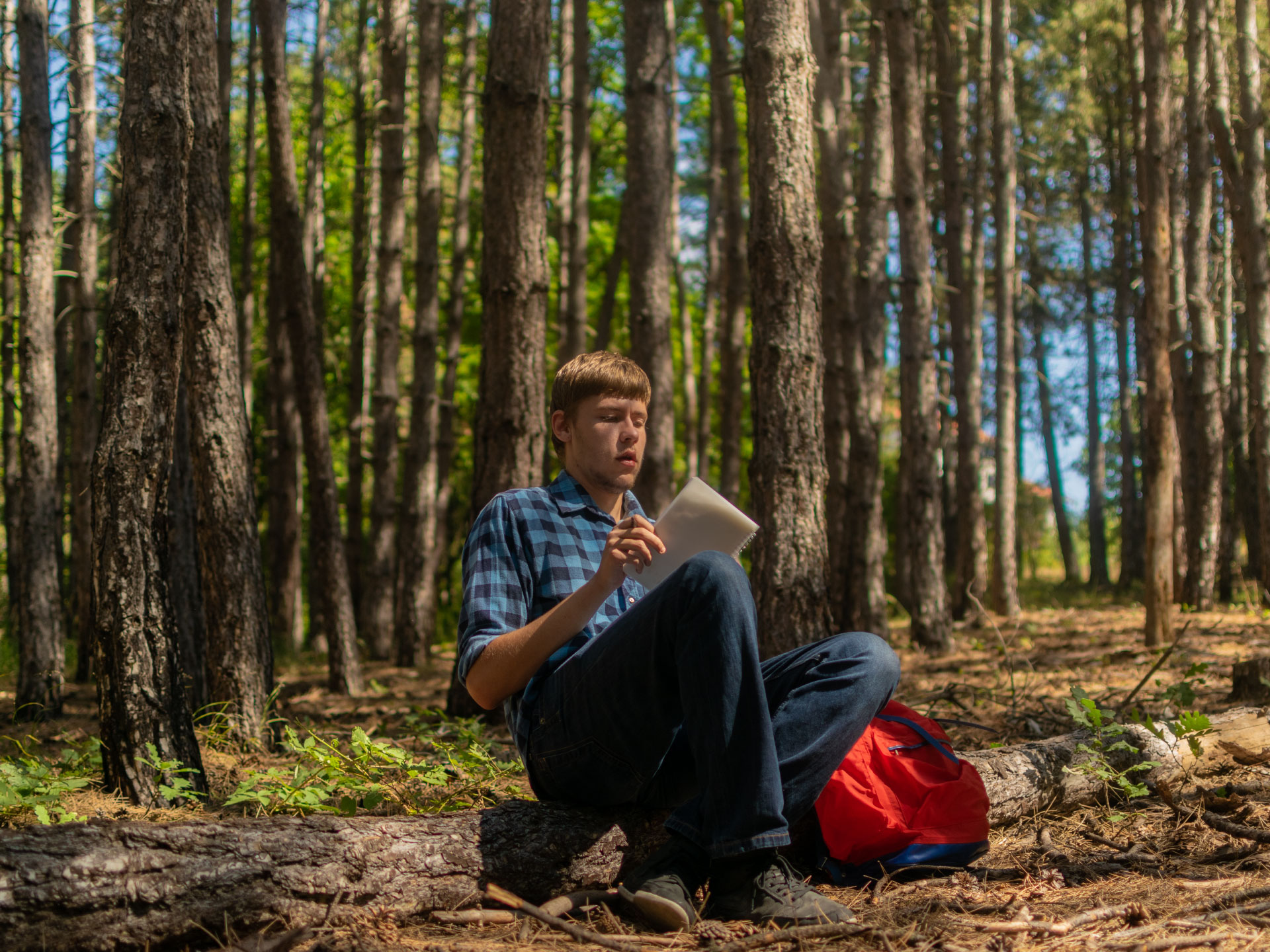
The Ontario Master Naturalist Program is run by Lakehead's Office of Community Engagement and Lifelong Learning (CELL), which offers programs, courses, and workshops to Lakehead's surrounding communities.
Just three weeks after her daughter Aleecia was born, Sheanna Bannon became a full-time university student.
It was a challenge that only someone with tremendous grit could pull off.
“Sheanna is an amazing student and mother,” says Lisa Primavesi, Lakehead's Indigenous Access Programs Coordinator. “She is a leader among her peers.”
In September 2020, Sheanna joined Lakehead's Indigenous Nursing Entry Program (INEP) and resurrected childhood aspirations that had fallen to the wayside.
“I wanted to be a doctor when I was a kid,” Sheanna explains. “I even attended Lakehead's Health Sciences camp when I was 16.”
INEP is an eight-month academic preparation course that qualifies Indigenous students to enter Lakehead's Bachelor of Science in Nursing program. It also looks at Western medicine from an Indigenous perspective.
“Becoming an RN is my first goal, but I'd like to get a master's degree in nursing so that I can become a nurse practitioner,” Sheanna says. “Nurse practitioners are able to prescribe medications and run their own clinics, which is really helpful in Indigenous communities where there are doctor shortages. I'm also thinking about going to medical school.”
Sheanna grew up on Fort William First Nation, her father's reserve, just outside Thunder Bay. Her mother is from Couchiching First Nation near Fort Frances, Ontario.
As a youngster, Sheanna excelled academically and athletically. She played competitive hockey and won a bronze medal in golf at the age of 13 in the 2008 North American Indigenous Games.
“My grandfather was a huge golfer,” Sheanna says. “He enrolled me in golf camps, and I caddied for him every summer. He was the closest person to me,” she adds. “I grew up with addiction in my home, but my grandfather was sober my whole life — he was my saving grace.”
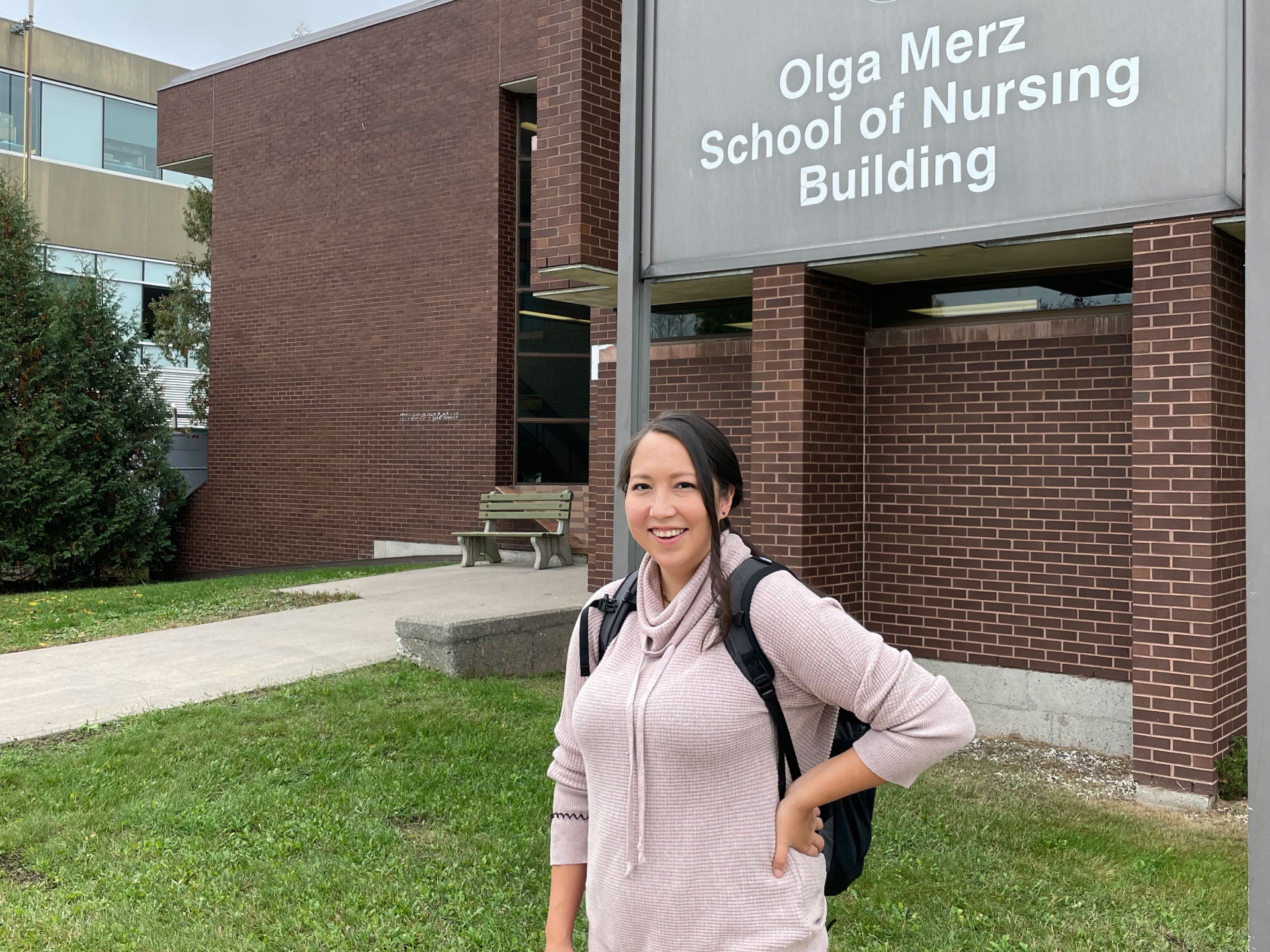
“Before I was doing my studies for myself, on a whim. Now there's a rhyme and a reason. The option of failing is not there.”
In high school, Sheanna's career ambitions shifted after visiting Ireland, Italy, and Greece and discovering that she loved meeting people from different cultural backgrounds. These overseas experiences prompted her to study geology because it offers unique work and travel opportunities in the mining sector.
After a year and a half of studies at the University of New Brunswick and Lakehead University, though, she was having second thoughts about her professional path. She took a break from schooling to figure out what she wanted to do next. Then, unexpectedly, everything came into focus.
“While I was pregnant, I realized that I wanted to help others,” Sheanna says.
Next came the hard part — juggling university studies with raising a newborn. Fortunately, Sheanna shares childcare duties with a supportive partner and the shift to virtual learning during the pandemic made things easier for her. So did INEP's resources, including tutoring and extracurricular activities.
Having Aleecia changed Sheanna's approach to studying.
“Before, I procrastinated and put more on my plate than I needed to. With the arrival of my daughter, I did assignments on time or ahead of time — it was the only way I could get things done.”
Aleecia attended every one of Sheanna's classes, often waving hello to her mother's classmates. Sheanna's fellow students were moved to witness some of her daughter's biggest milestones — including cheering Aleecia on when she crawled for the first time.
“Before I was doing my studies for myself, on a whim. Now there's a rhyme and a reason. The option of failing is not there.”
With that kind of determination, nothing can hold Sheanna back.
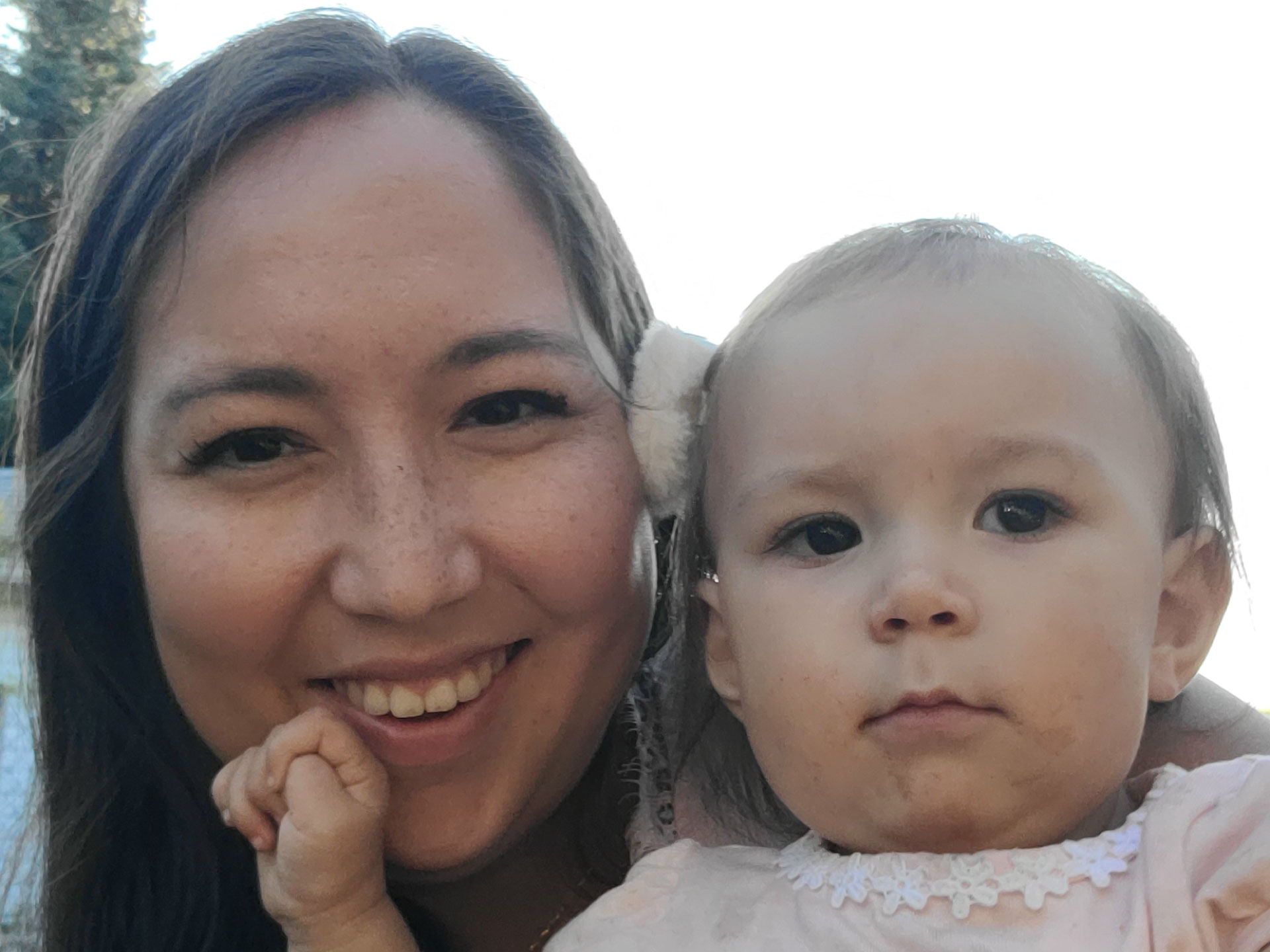
Sheanna completed the Indigenous Nursing Entry Program with exceptional marks and has been accepted into Lakehead's compressed Bachelor of Science in Nursing program.
Engaging & Innovating
Check out a few of the year's exciting news stories.
Unstoppable Leaders
Three unstoppable leaders who’ve changed the world for the better were given honorary degrees at Lakehead’s 2021 convocation ceremonies: The Honourable Murray Sinclair, Rosalind Lockyer, and Donald Paterson. Mr. Sinclair was granted an honorary Doctor of Laws for his groundbreaking work in the justice system and for helping Canada reckon with its legacy of colonialism and its treatment of Indigenous people. He was Manitoba’s first Indigenous judge and Canada’s second Indigenous judge as well as co-chair of the Aboriginal Justice Inquiry of Manitoba, chief commissioner of Canada’s Indian Residential Schools Truth and Reconciliation Commission, and a Canadian senator.
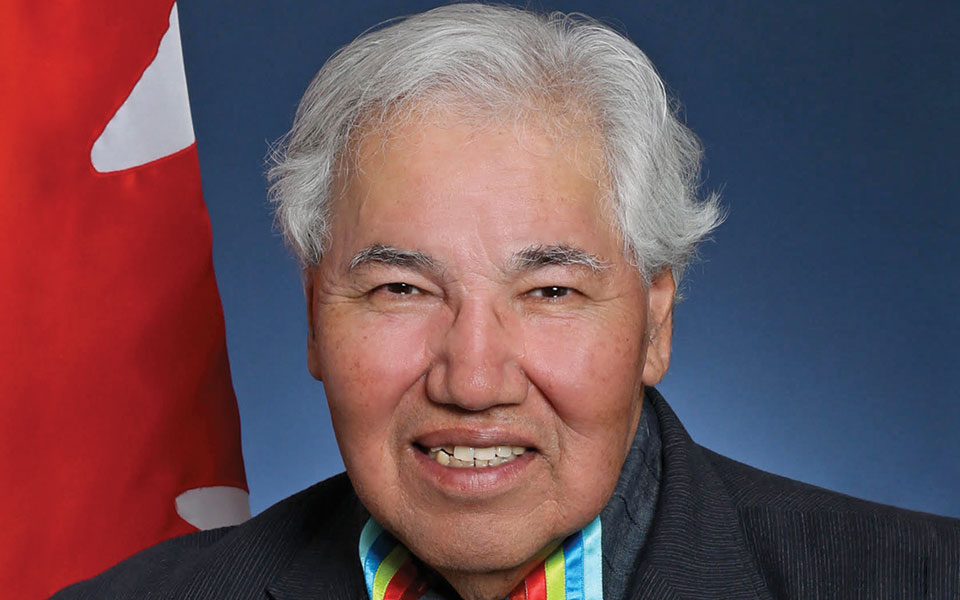
Rosalind Lockyer was given an honorary Doctor of Humane Letters for her dedication to gender equality and building sustainable livelihoods for thousands of women. In 1995, she founded the PARO Centre for Women’s Enterprise — the largest peer-lending network in North America — and one of the strongest Canadian business development organizations supporting a unique form of women-centred social enterprise.
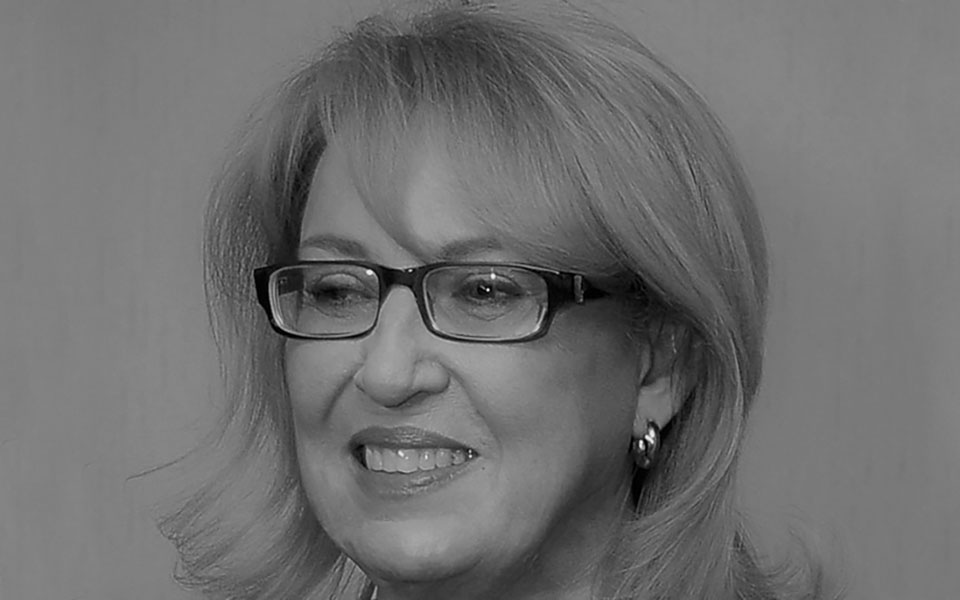
Donald Paterson joined his family business in Thunder Bay and ended his career as chair of Paterson GlobalFoods. He went on to chair the newly formed TBayTel Corporation and was instrumental in transforming TBayTel from a city department into to a fully independent corporate entity. He was also the founding president of the Ontario Arts Foundation. He was granted an honorary Doctor of Commerce for his commitment to his community.
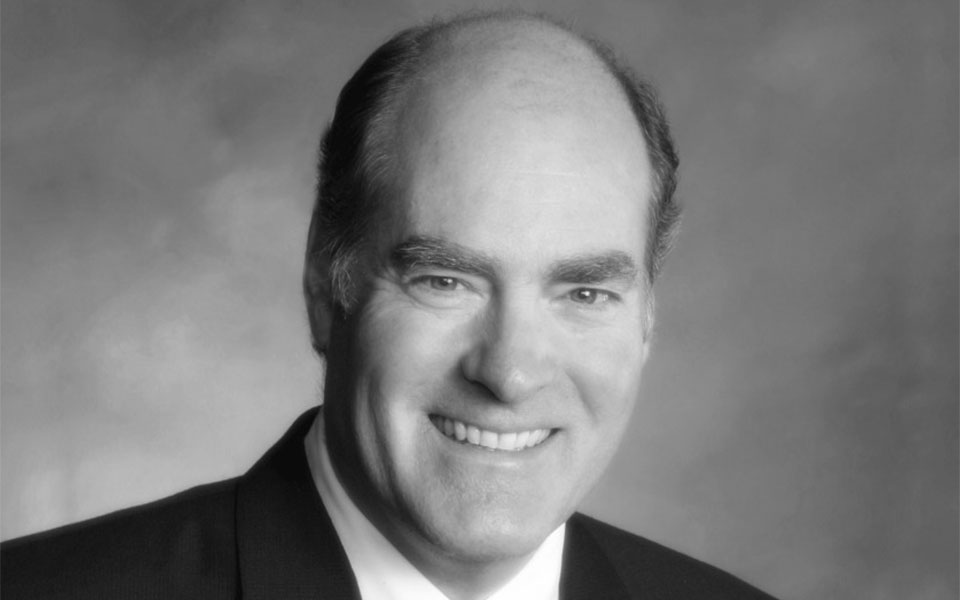
Seeking Justice
Lakehead launched the Maamawi Bimosewag - They Walk Together Indigenous Law and Justice Institute in response to the Truth & Reconciliation Commission's call to revitalize Indigenous laws and give Indigenous people better access to justice. This is essential because Indigenous people make up approximately 30% of incarcerated Canadians, even though they represent only 4.5% of the general population. The Bora Laskin Faculty of Law received approximately $437,000 from the federal Justice Partnership and Innovation Program to establish the institute.
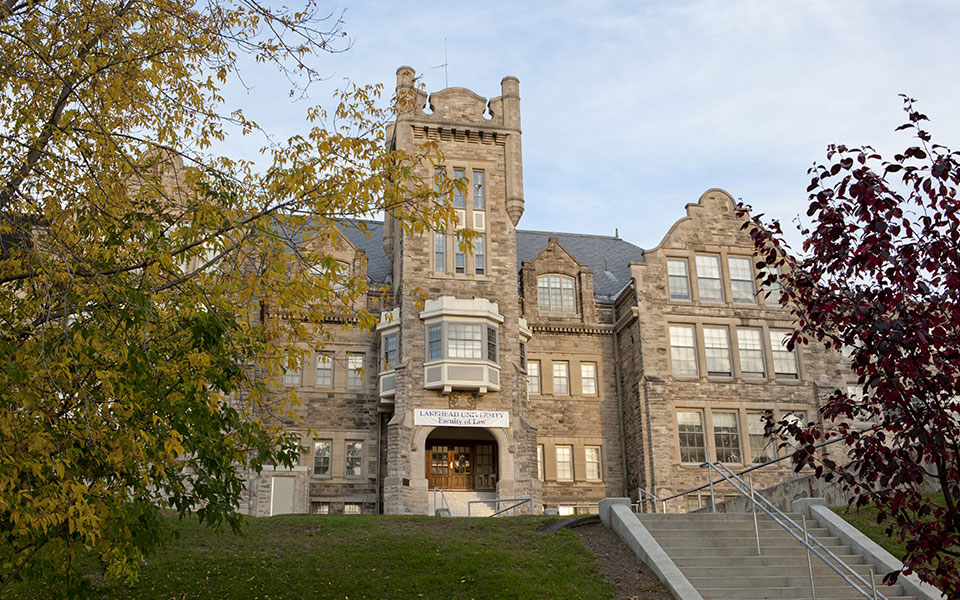
Creating Space Age Technology
Developing smart radio frequency components for applications including autonomous vehicles, the Internet of Things (IoT), cell phones, and aviation and space exploration is the focus of a Lakehead electrical engineering professor's work. Dr. Farhan Ghaffar's research is being propelled forward by his commitment to enhancing the infrastructure of 5G and IoT communications. Dr. Ghaffar is also a co-inventor of three international patents related to the biomedical industry, automotive radars, and manufacturing technologies.
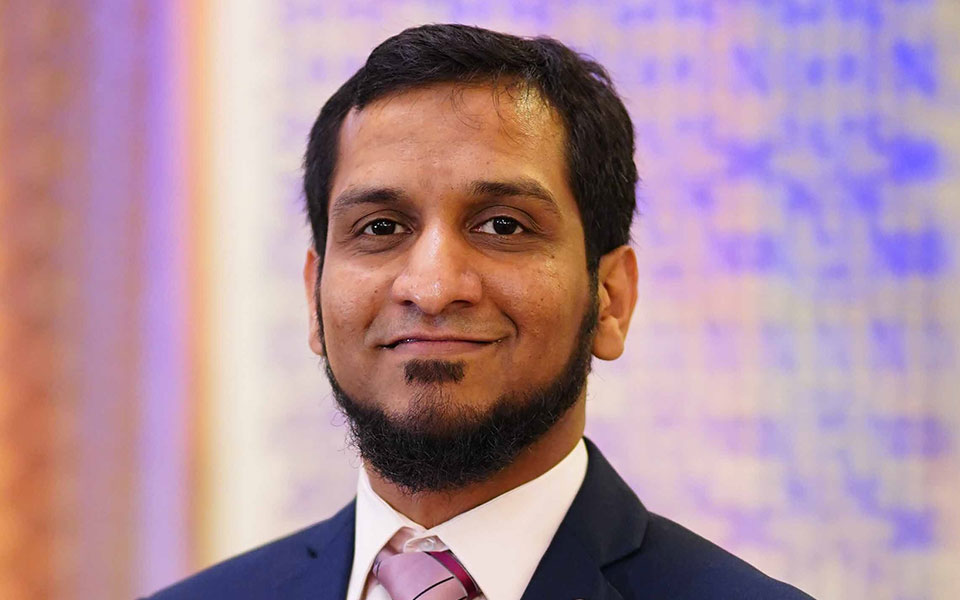
Developing New Mines
Lakehead's new Industrial Research Chair in Mineral Exploration, Dr. Peter Hollings, is working with Impala Canada to reduce the development time of new mine sites. "Together," explained Impala Canada CEO Tim Hill, "we hope to unlock nickel, copper, and platinum group metals that are essential for the world's transition to green energy." Dr. Hollings's research chair and nine new jobs were made possible by the Northern Ontario Heritage Fund Corporation’s $690,000 investment in mineral exploration and mining research at Lakehead.

Protecting Human Trafficking Victims
Millions of people become victims of human trafficking, and thousands of them end up in Canada. That's why in 2021, Social Work Professor Dr. Natalya Timoshkina partnered with North Simcoe Victim Services to see how the assistance they offer to trafficked people is being affected by the COVID-19 pandemic. "Simcoe County is a hot spot for sex trafficking and labour trafficking," Dr. Timoshkina explained. This research, funded by the Social Sciences and Humanities Research Council of Canada, will help safeguard the vulnerable.
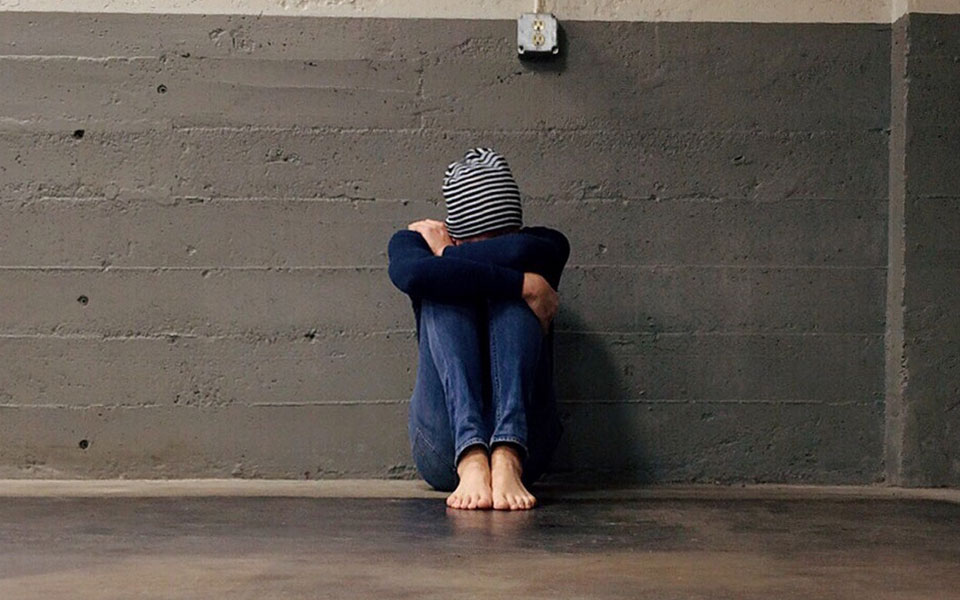
Stopping the Spread of COVID
Three software engineering students developed the "Vision-Based Occupancy Tracker System for Public Safety" to reduce the spread of COVID-19. This computer vision system detects and records any motion that occurs in an area. Paul Stoppel, Pearce Curle, and Mason Tommasini created the software for their second-year technical project, which challenges students to design solutions to real-world problems. By monitoring the number of people in public spaces, the software can prevent overcrowding and virus transmission.

Disappearing Ice Road
Beausoleil First Nation on Christian Island uses an ice road to get to and from the mainland during the winter. Over the last few years, though, the ice has thinned and made the road unpredictable and unsafe. Electrical engineering students Dave Edgcumbe and David "Abe" VanWinden Bonilla helped the community by setting up weather stations, water-level monitors, and an ice thickness sensor prototype to indicate whether the road is safe for travel. The two students worked on this project with Lakehead Orillia researcher Dr. Chris Murray.
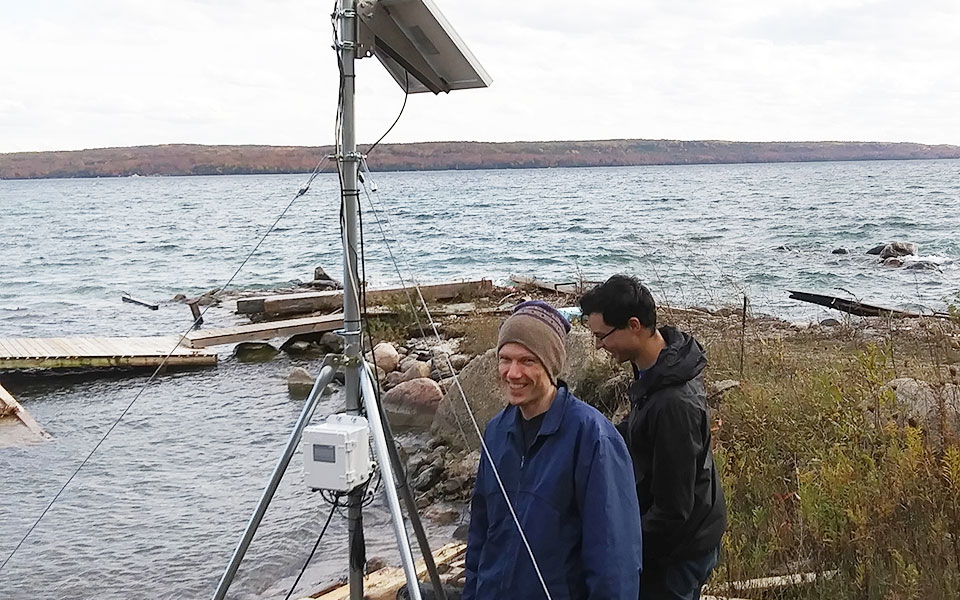
Saving Limbs and Lives
Nursing professor Dr. Idevania Costa established wound care clinics in Brazil and the Diabetic Foot & Wound Care Clinic in Northwestern Ontario to fight high rates of non-traumatic limb amputation. In both these regions, it's common for Indigenous people, the elderly, and other vulnerable populations to lose their limbs due to conditions like diabetes and peripheral arterial disease. In 2020, Dr. Costa received an "Outstanding Achievements in Patient Care" silver medal from the Journal of Wound Care and World Union of Wound Healing Societies.
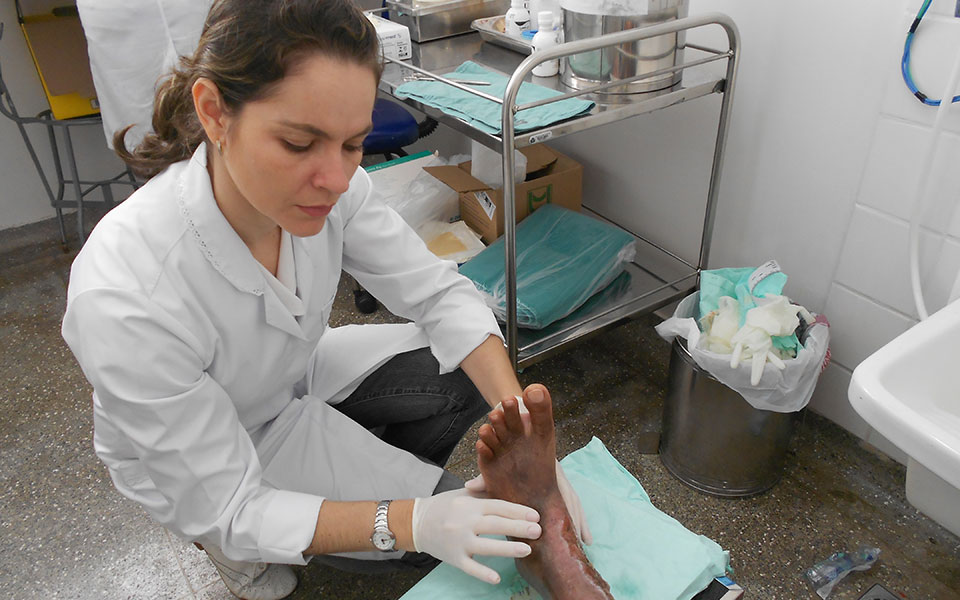
Watching a Rising Star
Samantha Deroches is volunteering with Engage Barrie to help build a more vibrant local democracy. A social work student, Samantha is also a welcoming presence on campus. She received a Rising Star award from the Lakehead Leader recognition program for re-establishing Lakehead Orillia's Social Work Club and for her work as an Alpha Pi Phi sorority member — an organization that supports the wider community. As part of her sorority work, Samantha organized a fundraiser to provide hot meals to people in Orillia facing homelessness.
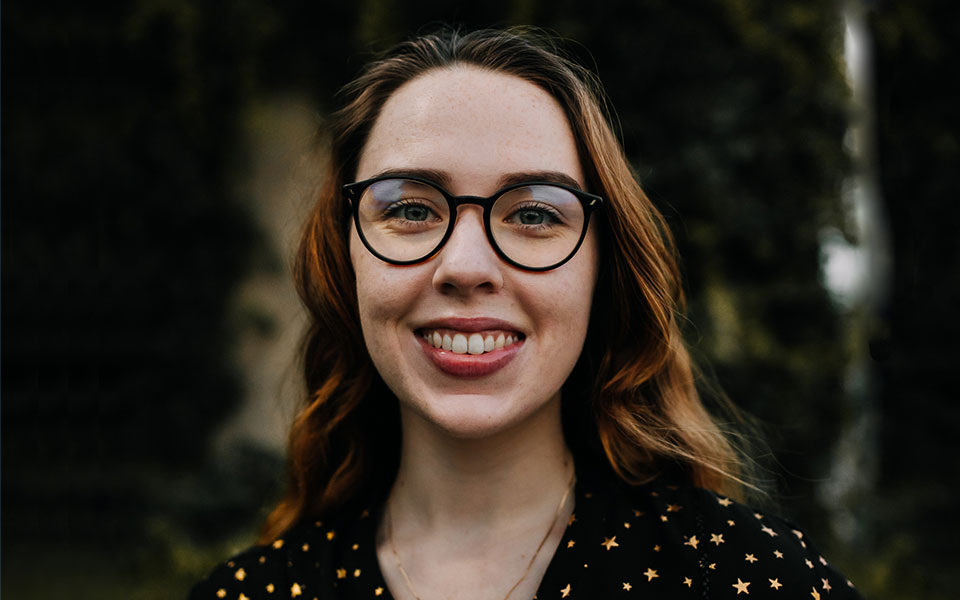
Preserving Northern Lakes
The invasive spiny water flea is threatening Northwestern Ontario's lakes, but freshwater ecologist Dr. Michael Rennie is trying to halt the damage. Dr. Rennie is using a $75,000 Quetico Foundation grant to investigate what's happening to Quetico Park's walleye and lake herring — fish being forced to compete with the invasive flea for food. The fish are also suffering from higher mercury levels caused by warming water temperatures. His research will be used to develop adaptive strategies for Ontario's recreational fisheries, which are worth $1.3 billion per year.
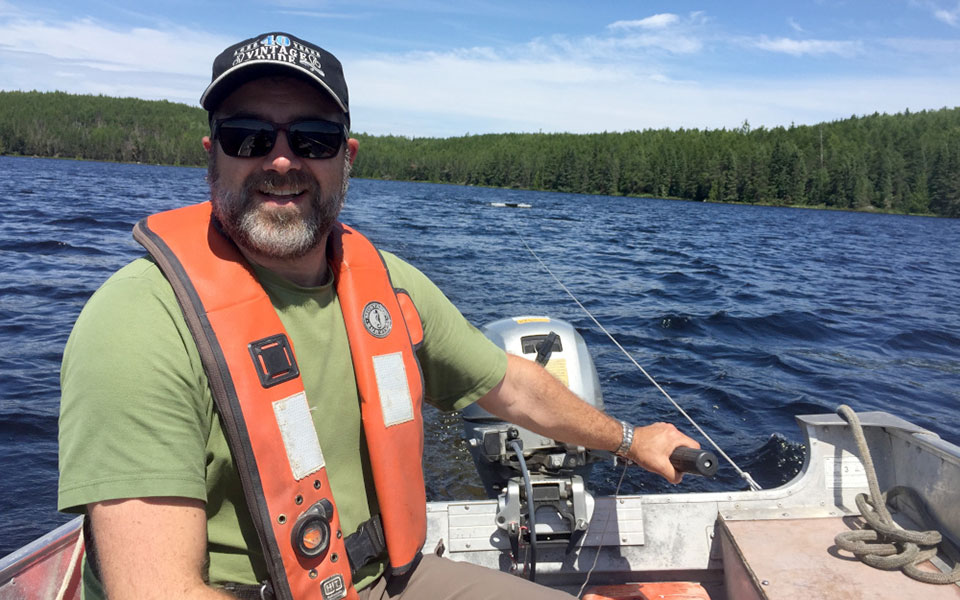
Boosting Agricultural Entrepreneurs
Lakehead is partnering with the Bioenterprise Corporation to help local entrepreneurs grow their businesses and boost Northwestern Ontario's agri-tech and food industry sectors. Bioenterprise is a network of Canadian entrepreneurs, accelerators, and service partners committed to innovation. This new collaboration will focus on areas such as cleantech, industrial applications for agriculture, food-tech, and commercial agriculture. Lakehead's contributions will include analytical services, small-plot research studies, and digital robotics expertise.

Acting Up
Brandon Rhéal Amyot (they/them) is committed to fighting for students, for education, and for change. A student in Lakehead's interdisciplinary studies program, they are also an activist, writer, and lifelong learner who, for the past 10 years, has worked with the 2SLGBTQ+ community, the Indigenous community, and the student movement. They were a founding member of Fierté Simcoe Pride and currently serve as a member of Lakehead's Board of Governors and as the Vice-President Orillia of the Lakehead University Student Union.
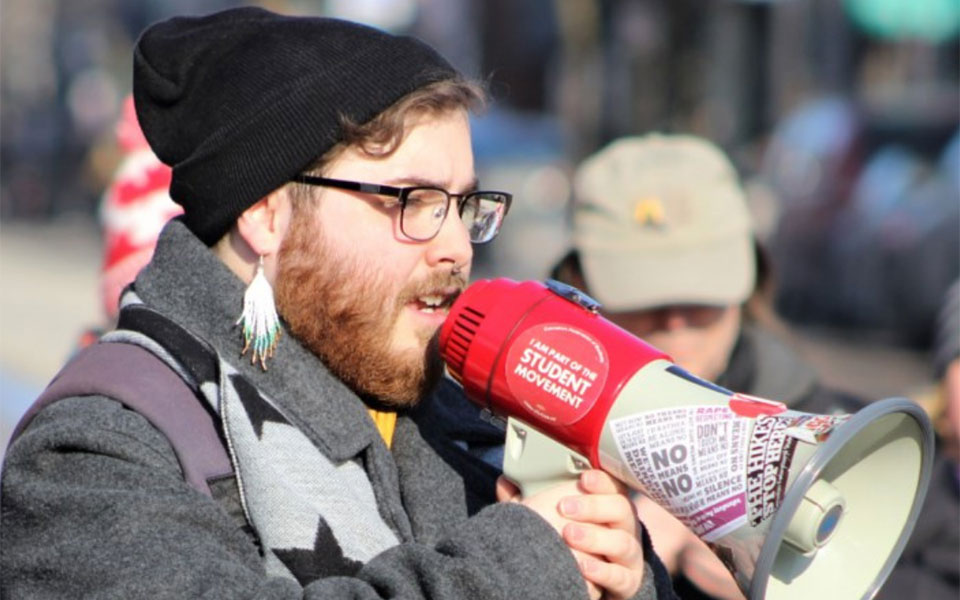
Photo credit: Nathan Taylor/OrilliaMatters
International Collaborations
Lakehead is one of Canada's top research-intensive universities and is known for translating research results into health, social, and economic benefits for our region, our country, and our world.
Each pin on this map indicates a country with which Lakehead has a partnership.
Drag to rotate the globe and click the yellow pins to view a project.
Unstoppable Researchers
Meet Lakehead researchers who have the vision to take on some of the most pressing challenges of our times.
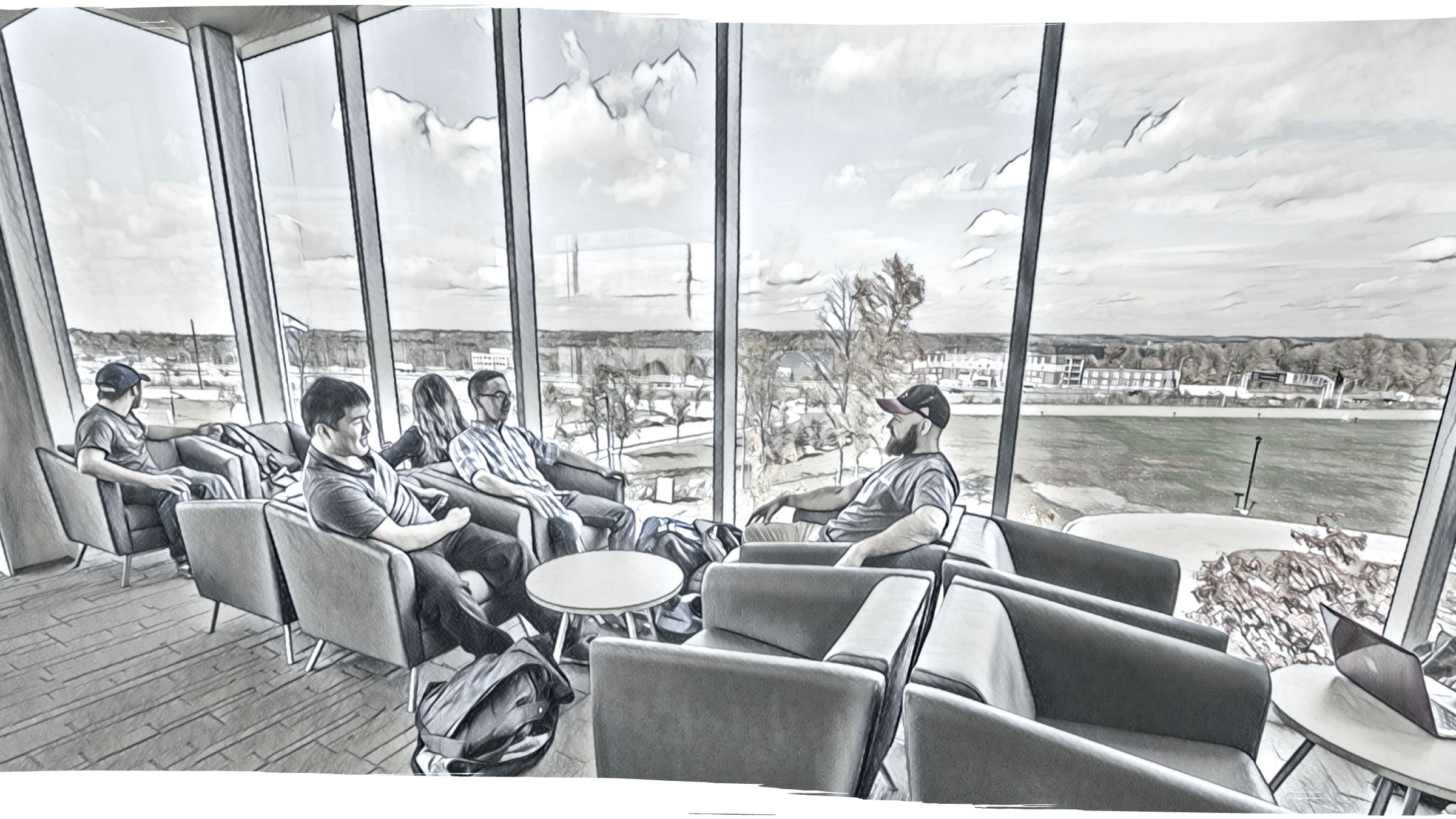
In 2020-21, the total impact of Lakehead University on Ontario's GDP was $1.64 Billion
Lakehead Orillia had a total impact $201 Million on Ontario's GDP
Lakehead Thunder Bay had a total impact $1.44 Billion on Ontario's GDP
International Students and Visitors to Lakehead University (both campuses) spend $51.6 Million annually
In 2020-21, Lakehead had the highest 7-year graduation rate among Ontario's primarily undergraduate universities.
42% First generation students
(neither parent has a degree)
54% Domestic undergraduate students
are from rural/northern communities
12% of domestic students
identify as Indigenous
46% of full-time undergraduate students on the
Thunder Bay campus are from Northwestern Ontario
46% of full-time undergraduate students on the
Orillia campus are from Simcoe County
1,810 international students from 73 countries
(including English Language Program and exchange students)
94% of Lakehead senior-year students
have been engaged in a course with applied research
100% of senior-year students
participated in experiential learning such as community-based learning or co-op
49% of domestic undergraduate students
receive OSAP based on student need
5% of domestic students with potential
admitted with lower entering averages
482 Undergraduate students accessed a
Lakehead University entry program in 2020-21
Entry programs help students raise their academic average so that they can enter Lakehead degree programs. These include Gateway, the Native Access Program, the Indigenous Nurses Entry Program, and the Indigenous Transition Program.
Student Enrolment by Campus (Headcount)


- Education includes Consecutive Education, Education Professional Year, & HBEd Aboriginal.
- Science & Environmental Studies, and Social Sciences & Humanities includes Concurrent Education (1st Degree).
Maclean's 2022 University Rankings
Lakehead University is among Canada's top 10 primarily undergraduate universities.
Lakehead ranked SECOND OVERALL among Ontario universities in its category in the 2022 Maclean”s Ranking of Canadian Universities and:
1st in Student Awards (tied)1st in Faculty Awards
1st in Total Library Acquisitions
2nd for Highest Quality
2nd in Developing the Leaders of Tomorrow
2nd in Social Sciences and Humanities Grants
2nd in Scholarships and Bursaries
2nd in Operating Budget
2nd in Library Expenses
3rd for Most Innovative
3rd in Student/Faculty Ratio
3rd in Total Research Dollars
3rd in Medical/Science Grants
3rd in Reputation
Maclean's also found that Lakehead has the lowest class sizes in first- and second-year classes among all Ontario universities.
Annual salary 2 years after graduating is $52K
94% Employment rate
six months after graduation
98% Employment rate
two years after graduation
85% of Lakehead grads (full-time students) are
working in jobs related to their undergraduate degree
91% of Lakehead grads are
doing work using skills developed through their undergrad education
Canada's #2 Research University in 2020
Lakehead has 43 Graduate Programs
and 2 Diploma Programs
Over the past 10 years, the number of
graduate students increased by 85%
Lakehead has 66,907 Alumni living in 105 different countries.
76% of our Alumni live in Ontario
40% of our Alumni live in Thunder Bay and Northern Ontario
16% of our Alumni live within 100 km of Toronto
THE World University Rankings
Every year, the definitive list of the world's best universities is released by Times Higher Education.
It is the only global ranking to judge research-intensive universities across their core missions of teaching, research, international outlook, research citations, and industry income.
For the THIRD YEAR IN A ROW, Lakehead University has been included in the top half of the Times Higher Education's list of the best universities from around the world.
The 2022 Times Higher Education (THE) World University Rankings places Lakehead University in the 801-1,000 category out of more than 1,600 universities from 99 countries.
Lakehead ranked SECOND among Canada's primarily undergraduate universities and second among Ontario's primarily undergraduate universities.
Lakehead also ranked above the worldwide median in the areas of research and international outlook.
A Top 100 University Worldwide for Societal Impact
For the second year in a row, Lakehead University has placed in the top 100 of the Times Higher Education Impact Rankings.
The Times Higher Education Impact Rankings measure the societal impact of universities by evaluating their success in delivering the United Nations' Sustainable Development Goals (SDGs). The rankings measure the impact universities have in the areas of poverty, inequality, climate change, environmental degradation, peace, and justice.
Lakehead finished 99th out of 1,115 universities from around the world in meeting the United Nations' 17 Sustainable Development Goals (SDGs).
Lakehead is the only primarily undergraduate university in Canada that participated in the 2021 Impact Rankings and one of only 26 universities from North America to be included in the top 100.
Lakehead earned a top 10 ranking in SDG 15: Life on Land.
The Life on Land SDG evaluates how universities support land ecosystems through education and action, how they contribute to sustainably managing forests, combating desertification, halting and reversing land degradation, and stopping biodiversity loss.
Lakehead also received a top 20 ranking in SDG Life Below Water, a top 30 ranking in SDG No Poverty and SDG Zero Hunger, and a top 40 ranking for SDG Reduced Inequalities and SDG Clean Water and Sanitation.
884
Donors gave to Lakehead in 2020-21
$1.4 Million
in New Gifts
$3.7 Million*
in Total Gifts
*Includes total value of legacy expectancies
59%
of our Donors are Lakehead Alumni
80%
of 2020-21 donors were Returning Donors



Balance Sheet
Statement of Operations


